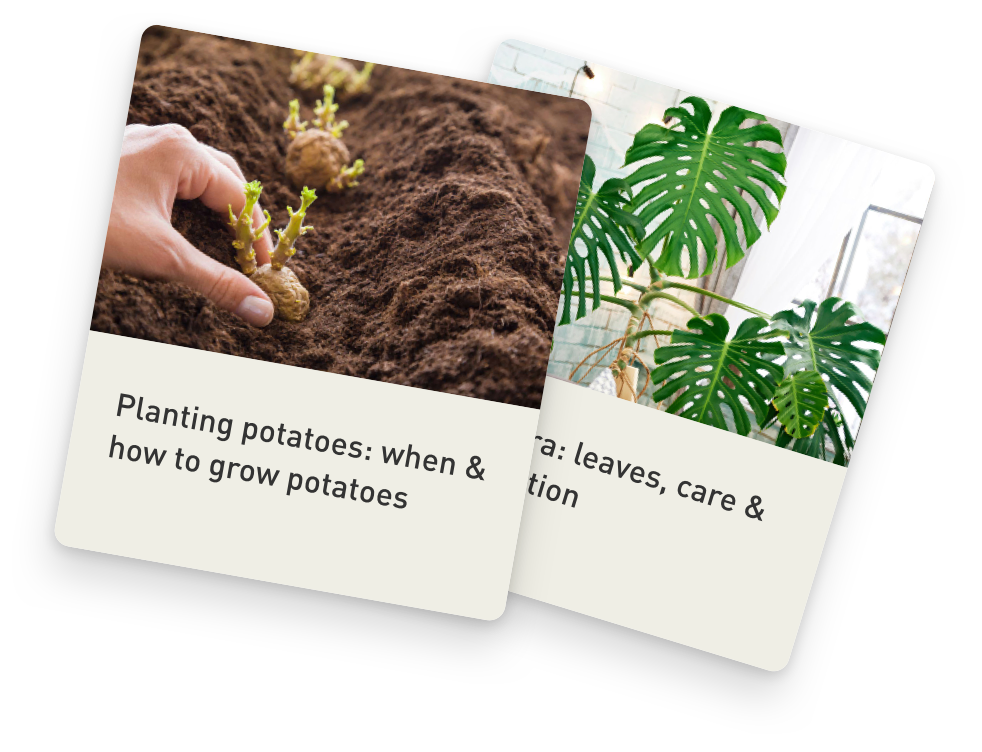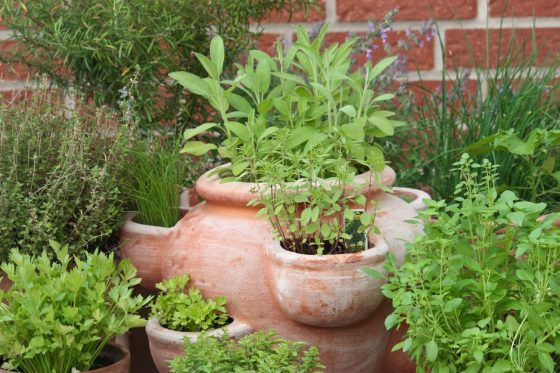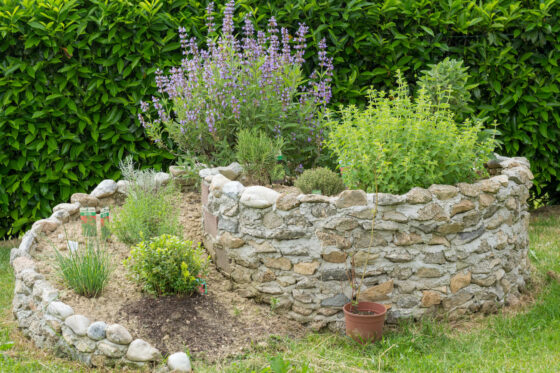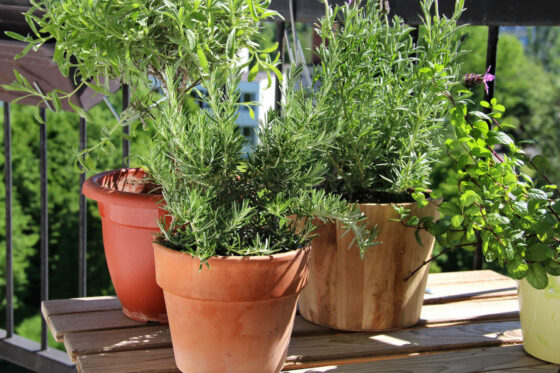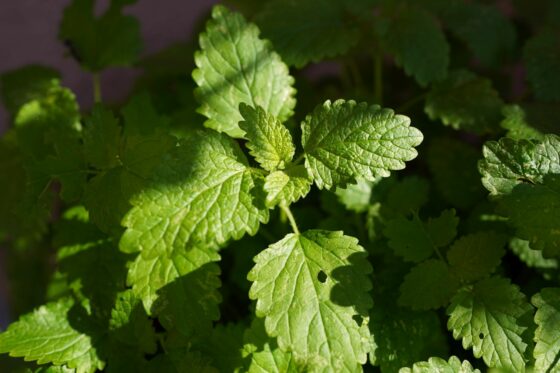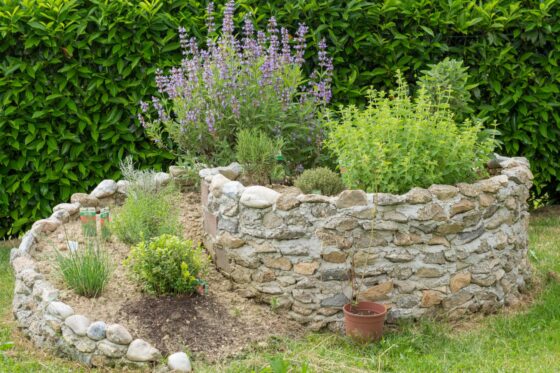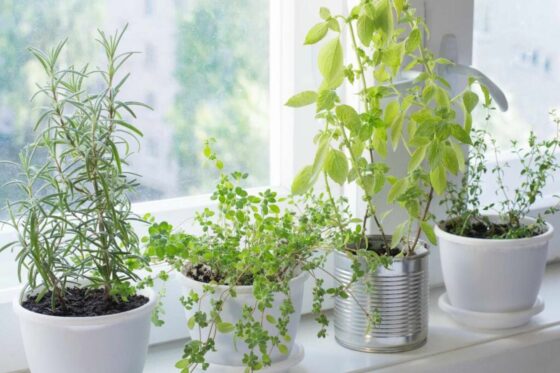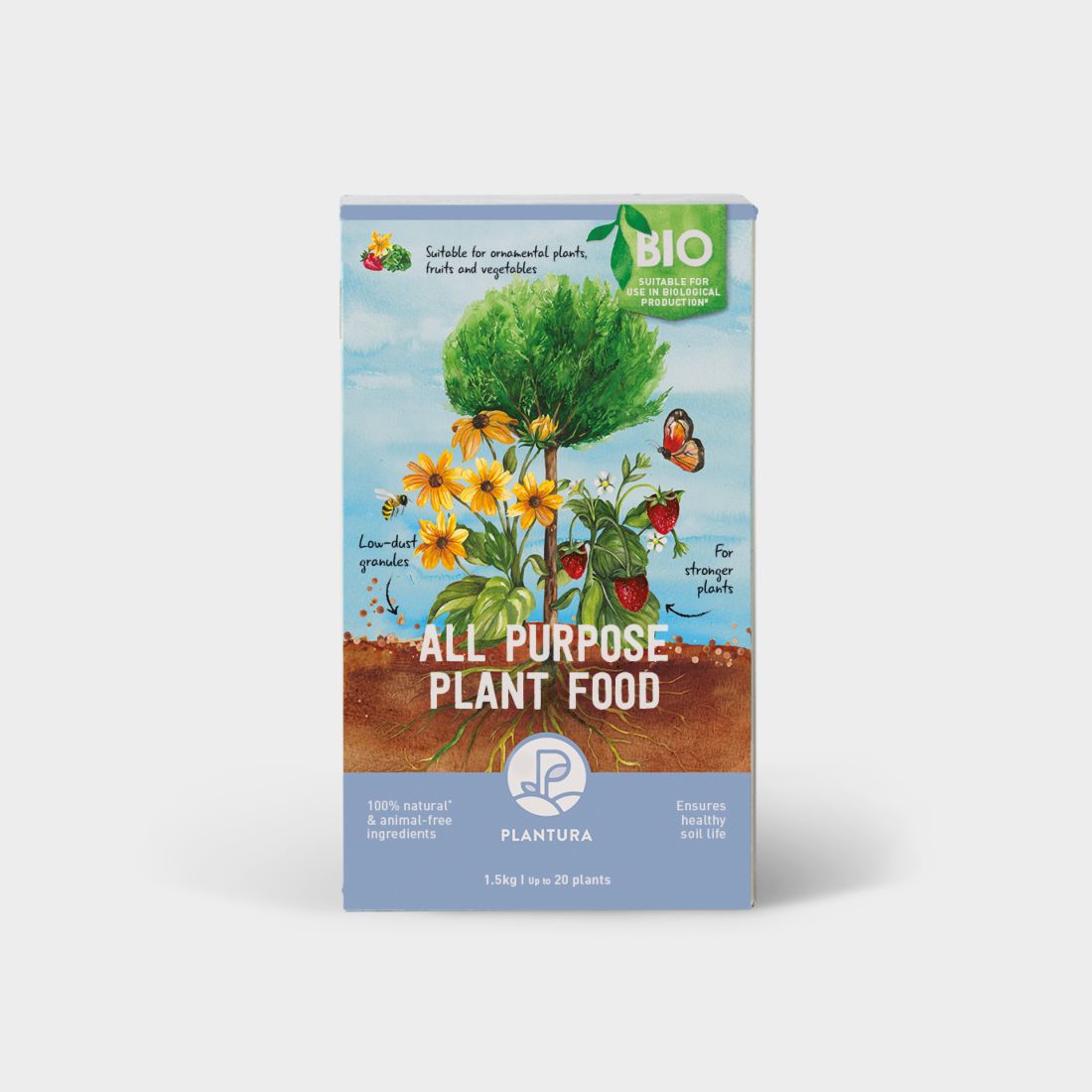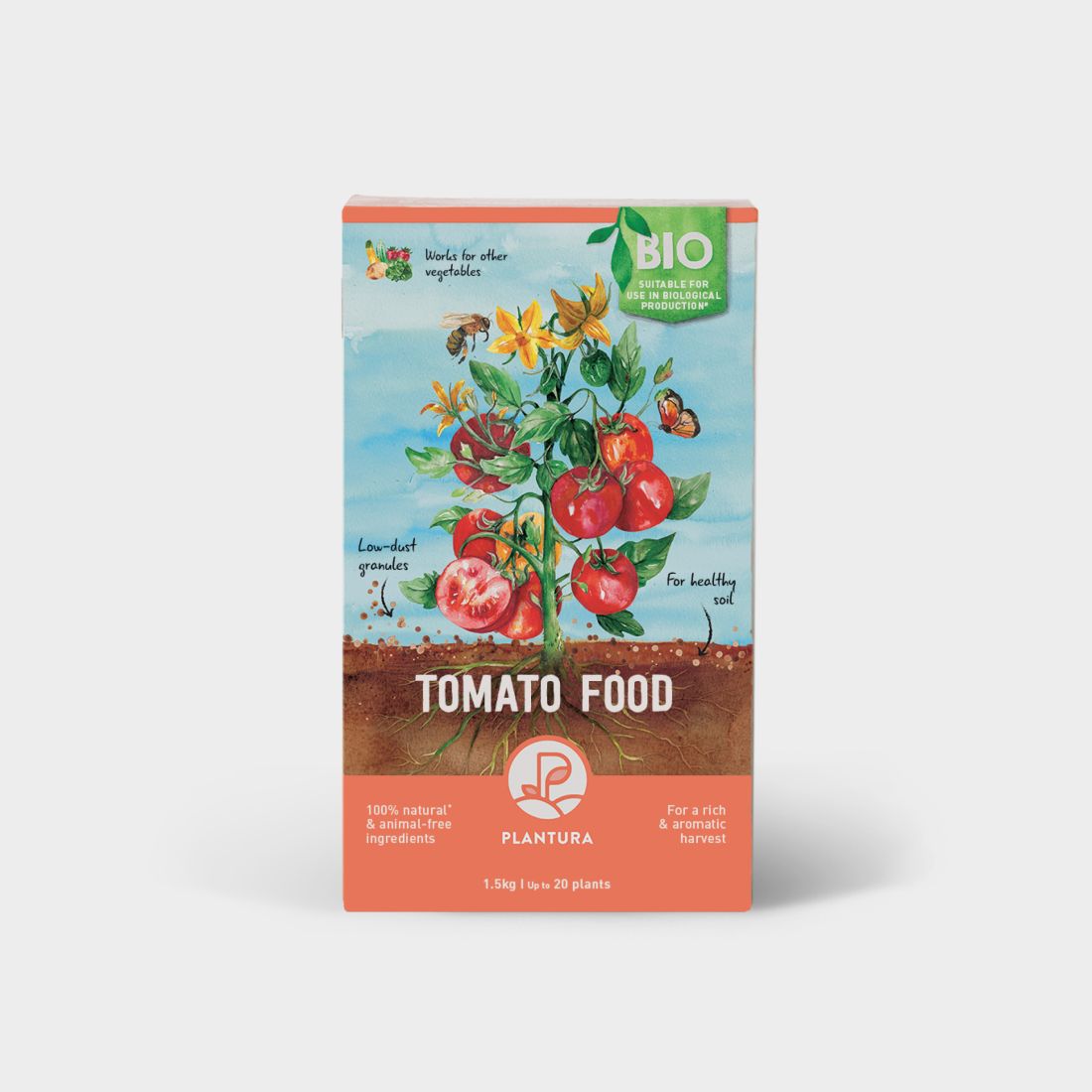Some herbs get along better than others. Here is our comprehensive guide to which herbs grow well together, and which do not.
Companion planting with herbs not only looks good, but also has many benefits [Photo: Irina Kvyatkovskaya/ Shutterstock.com] There is a huge variety of herbs that you can grow in your own garden. They come from the most diverse regions of the world and would probably never cross paths or grow together without our help. Just like people, there are some herbs that get along very well with each other and others that are best kept apart. But which herbs should you grow together? Find out how to best arrange your herb garden and learn how companion planting with herbs can be highly beneficial in helping your plants thrive.
Herbs to plant together Many factors need to be considered to ensure the herbs grow well together:
Location: Herbs with similar site requirements – such as sunlight, soil and nutrients are generally good companions. Herb composts such as our Plantura Organic Herb & Seedling Compost are adapted to the needs of many herbs and help these companions to thrive.Growth: If two herbs grow at roughly the same rate, there is no danger of one outgrowing the other. So, both herbs can thrive side by side without crowding each other out.Nutrients: Do you love rosemary? You are not the only one, basil does too. The herb’s intense scent indicates that it is rich in nutrients. These nutrients also reach the neighbouring herb through the water, air and soil. In some cases, the nutrients of one herb can have a positive effect on the other herb’s growth, disease tolerance and taste. The perennial lemon balm is a good companion for many other herbs [Photo: Melica/ Shutterstock.com] Herb companion planting chart Herb Suitable herb companions Rosemary (Rosmarinus officinalis ), thyme (Thymus vulgaris ), lavender (Lavandula ), sage (Salvia officinalis ), hyssop (Hyssopus officinalis ), winter savory (Satureja montana ) Get along well with each other because of similar location requirements (sunny, warm, nutrient-poor, alkaline pH) Rosemary (Rosmarinus officinalis ) Rosemary encourages basil to grow (Ocimum basilicum ) Sage (Salvia officinalis ) Promotes the growth of oregano (Origanum vulgare ) and savory (Satureja ) Thyme (Thymus vulgaris ) Compatible with fennel (Foeniculum vulgare ), coriander (Coriandrum sativum ), tarragon (Artemisia dracunculus ), borage (Borago officinalis ) and Mediterranean herbs (see above) Camomile (Matricaria chamomilla ) Promotes the growth of dill (Anethum graveolens ), chives (Allium schoenoprasum ), marjoram (Origanum majorana ), chervil (Anthriscus cerefolium ) and salad burnet (Sanguisorba minor ) Parsley (Petrosilium crispum ssp. crispum ) Compatible with chives (Allium schoenoprasum ), basil (Ocimum basilicum ), coriander (Coriandrum sativum ), tarragon (Artemisia dracunculus ), salad burnet (Sanguisorba minor ) Hyssop (Hyssopus officinalis ) Promotes the growth of lavender and savory Basil (Ocimum basilicum ) Compatible with almost all herbs Lovage (Levisticum officinale ) Promotes the growth of fennel and parsley (Petroselinum crispum ssp. crispum ) Borage (Borago officinalis ) Compatible with almost all herbs Lemon balm (Melissa officinalis ) Compatible with almost all herbs
Which herbs do not go together? There are various reasons why some herbs tend to dislike each other:
Annual and perennial herbs: In principle, annual and perennial herbs get along with each other, but perennials are disturbed if every year its annual neighbour is dug up and replaced by a new one.Location requirements: Mediterranean herbs love the sun, nutrient-poor and alkaline soil, and like it a little drier too. Lemon balm and mint enjoy a somewhat shadier and more nutrient-rich location. It is therefore logical that the two groups cannot grow so close to each other.Competition: Some herbs are very fast growing and would simply crowd out slower growing species. It is therefore better to keep such species apart.Nutrients: Herbs are rich in essential oils and other nutrients. That is why they taste so good. But not every herb tolerates the substances produced by its neighbour. Such cases can lead to growth inhibition or even the death of the plant. For this reason, garden cress, for example, is a pretty unpopular companion with many plants. Garden cress isn’t a very good herb companion plant By taking these factors into account, it is easy to work out which herbs make good companions based on their location requirements and growth habits. Nevertheless, we have compiled a table for you with herbs that do not get along at all.
Herb Not compatible with Dill (Anethum graveolens ) Cress (Lepidium sativum ), fennel (Foeniculum vulgare ), caraway (Carum carvi ), tarragon (Artemisia dracunculus ) Basil (Ocimum basilicum ) Lemon balm (Melissa officinalis ), mint (Mentha ) Parsley (Petroselinum crispum ssp. crispum ) Chervil (Anthriscus ), dill (Anethum graveolens ) Lemon balm (Melissa officinalis ) Basil (Ocimum basilicum ) Fennel (Foeniculum vulgare ) Coriander (Coriandrum sativum ), dill (Anethum graveolens ), cress (Lepidium sativum ), marjoram (Origanum majorana ), caraway (Carum carvi ) Peppermint (Mentha x piperita ) Camomile (Matricaria chamomilla ) Garden cress (Lepidium sativum ) Dill (Anethum graveolens ), fennel (Foeniculum vulgare ), coriander (Coriandrum sativum ), parsley (Petroselinum crispum ssp. crispum ), rocket (Eruca vesicaria ), chervil (Anthriscus ) Marjoram (Origanum majorana ) Fennel (Foeniculum vulgare ), thyme (Thymus ) Thyme (Thymus ) Marjoram (Origanum majorana )
If space is a bit limited and you would like to plant your herbs close together, including those that do not get along so well, an herb spiral is a great solution. It is made up of several microclimates, ranging from sun to shade, and well-drained to saturated soils.
Organic Herb & Seedling Compost, 20L
2 -saving composition It is important to fertilise herbs from time to time to help them develop their full aroma. Read our article about fertilising herbs to learn more. Get an overview of immune-boosting herbs here.
Subscribe to the Plantura newsletter ...and receive exciting gardening tips, special offers and a 10% discount on your next purchase in the
Plantura shop !
{ "products": [ { "name": "All Purpose Plant Food, 1.5kg", "unitPrice" : "Base price: £6.66/kg", "compareAtPriceString": "£12.99", "priceString": "£9.99", "compareAtPrice": 12.99, "price": 9.99, "sale":false, "percentage":"23%", "badge": "angebot", "url": "https://www.uk.plantura.garden/products/all-purpose-plant-food-1-5-kg", "available": true, "availabilityInfo":"", "campaignInfo":"","isSet": false, "priceLabel": "", "compareAtPriceLabel": "","reviewsData":{"reviewCount": 4, "reviewAverageValue": 4.8},"image": "https://www.uk.plantura.garden/cdn/shop/products/plantura-all-purpose-plant-food_1100x.jpg?v=1656335807","tags": "angebot,berries,box tree,cherry laurel,fig tree,Flowers,garlic,granular fertiliser,Hedges & Shrubs,Herbs,Houseplants,lavender,lettuce,oleander,palm tree,palm trees,pampas gras,plant fertiliser,slow release fertiliser,Vegetables","bulletPoints": ["Perfect for a variety of plants in the garden \u0026 on the balcony","Promotes healthy plant growth \u0026 an active soil life","Long-lasting fertiliser that is free from animal products - child \u0026 pet friendly"],"variants" : [ {"sku": "GF-APPF-A03K","available": true, "compareAtPriceString": "£12.99", "priceString": "£9.99", "compareAtPrice": 12.99, "price": 9.99, "sale":true, "percentage":"23%", "priceCurrency" : "GBP", "url" : "https://www.uk.plantura.garden/products/all-purpose-plant-food-1-5-kg?variant=37777826840739","isSet":false}, {"sku": "GF-APPF-3KG1","available": true, "compareAtPriceString": "£25.98", "priceString": "£19.49", "compareAtPrice": 25.98, "price": 19.49, "sale":true, "percentage":"25%", "priceCurrency" : "GBP", "url" : "https://www.uk.plantura.garden/products/all-purpose-plant-food-1-5-kg?variant=37777826873507","isSet":true }, {"sku": "GF-APPF-A06K","available": true, "compareAtPriceString": "£51.96", "priceString": "£37.99", "compareAtPrice": 51.96, "price": 37.99, "sale":true, "percentage":"27%", "priceCurrency" : "GBP", "url" : "https://www.uk.plantura.garden/products/all-purpose-plant-food-1-5-kg?variant=37777826906275","isSet":true }, {"sku": "GF-APPF-A12K","available": false, "compareAtPriceString": "£103.92", "priceString": "£69.99", "compareAtPrice": 103.92, "price": 69.99, "sale":true, "percentage":"33%", "priceCurrency" : "GBP", "url" : "https://www.uk.plantura.garden/products/all-purpose-plant-food-1-5-kg?variant=37777826939043","isSet":true }], "handle" : "all-purpose-plant-food-1-5-kg"}, { "name": "Autumn Lawn Feed 10.5kg, 200m2 coverage", "unitPrice" : "Base price: £2.86/kg", "compareAtPriceString": "", "priceString": "£29.99", "compareAtPrice": 0.0, "price": 29.99, "sale":false, "percentage":"", "badge": "angebot", "url": "https://www.uk.plantura.garden/products/autumn-lawn-feed-10-5-kg", "available": true, "availabilityInfo":"", "campaignInfo":"","isSet": false, "priceLabel": "", "compareAtPriceLabel": "","reviewsData":{"reviewCount": 11, "reviewAverageValue": 4.4},"image": "https://www.uk.plantura.garden/cdn/shop/products/autumn-lawn-feed-10-5kg-plantura_1100x.jpg?v=1657620622","tags": "autumn,autumn fertiliser,granular fertiliser,Lawn,lawn care,plant fertiliser,potassium,slow release fertiliser,soil,spreader,turf,vinasse","bulletPoints": ["Perfect for fertilising lawns from July to October","Promotes a winter-hardy lawn \u0026 fast regeneration in spring","Long-lasting fertiliser that is free from animal products - child \u0026 pet friendly"],"variants" : [ {"sku": "GF-PALF-105K","available": true, "compareAtPriceString": "", "priceString": "£29.99", "compareAtPrice": 0.0, "price": 29.99, "sale":false, "percentage":"", "priceCurrency" : "GBP", "url" : "https://www.uk.plantura.garden/products/autumn-lawn-feed-10-5-kg?variant=37777824219299","isSet":false}, {"sku": "GF-PALF-21KG","available": true, "compareAtPriceString": "£59.98", "priceString": "£56.99", "compareAtPrice": 59.98, "price": 56.99, "sale":true, "percentage":"5%", "priceCurrency" : "GBP", "url" : "https://www.uk.plantura.garden/products/autumn-lawn-feed-10-5-kg?variant=37777824252067","isSet":true }, {"sku": "GF-PALF-42KG","available": true, "compareAtPriceString": "£119.96", "priceString": "£110.99", "compareAtPrice": 119.96, "price": 110.99, "sale":true, "percentage":"7%", "priceCurrency" : "GBP", "url" : "https://www.uk.plantura.garden/products/autumn-lawn-feed-10-5-kg?variant=37777824284835","isSet":true }], "handle" : "autumn-lawn-feed-10-5-kg"}, { "name": "Autumn Lawn Feed 3kg, 60m2 coverage", "unitPrice" : "", "compareAtPriceString": "", "priceString": "£14.99", "compareAtPrice": 0.0, "price": 14.99, "sale":false, "percentage":"", "badge": "angebot", "url": "https://www.uk.plantura.garden/products/autumn-lawn-feed-3-kg", "available": false, "availabilityInfo":"", "campaignInfo":"","isSet": false, "priceLabel": "", "compareAtPriceLabel": "","reviewsData":{"reviewCount": 8, "reviewAverageValue": 4.9},"image": "https://www.uk.plantura.garden/cdn/shop/products/autumn-lawn-feed-3kg-plantura_1100x.jpg?v=1657615883","tags": "autumn,autumn fertiliser,discount,granular fertiliser,Lawn,lawn care,plant fertiliser,potassium,sale,slow release fertiliser,soil,spreader,turf,vinasse","bulletPoints": ["Perfect for fertilising lawns from July to October","Promotes a winter-hardy lawn \u0026 fast regeneration in spring","Long-lasting fertiliser that is free from animal products - child \u0026 pet friendly"],"variants" : [ {"sku": "GF-PALF-A03K","available": false, "compareAtPriceString": "", "priceString": "£14.99", "compareAtPrice": 0.0, "price": 14.99, "sale":false, "percentage":"", "priceCurrency" : "GBP", "url" : "https://www.uk.plantura.garden/products/autumn-lawn-feed-3-kg?variant=37777828282531","isSet":false}, {"sku": "GF-PALF-A06K","available": false, "compareAtPriceString": "£29.98", "priceString": "£27.99", "compareAtPrice": 29.98, "price": 27.99, "sale":true, "percentage":"7%", "priceCurrency" : "GBP", "url" : "https://www.uk.plantura.garden/products/autumn-lawn-feed-3-kg?variant=37777828315299","isSet":true }], "handle" : "autumn-lawn-feed-3-kg"}, { "name": "Box Tree Moth Trap", "unitPrice" : "", "compareAtPriceString": "", "priceString": "£24.99", "compareAtPrice": 0.0, "price": 24.99, "sale":false, "percentage":"", "badge": "angebot", "url": "https://www.uk.plantura.garden/products/box-tree-moth-trap", "available": false, "availabilityInfo":"", "campaignInfo":"","isSet": false, "priceLabel": "", "compareAtPriceLabel": "","reviewsData":{"reviewCount": 3, "reviewAverageValue": 5.0},"image": "https://www.uk.plantura.garden/cdn/shop/products/box-tree-moth-trap-plantura_1100x.jpg?v=1657530999","tags": "box tree,box tree caterpillar,Box Tree Moth,pheromone trap","bulletPoints": ["Reusable pheromone trap for monitoring box tree moth activity","For the early detection of infestations - covers an area of up to 180m\u003csub\u003e2\u003c\/sub\u003e","100% insecticide-free - not harmful to humans or pets"],"variants" : [ {"sku": "MT-BTMT-RT01","available": false, "compareAtPriceString": "", "priceString": "£24.99", "compareAtPrice": 0.0, "price": 24.99, "sale":false, "percentage":"", "priceCurrency" : "GBP", "url" : "https://www.uk.plantura.garden/products/box-tree-moth-trap?variant=41520312058019","isSet":false}], "handle" : "box-tree-moth-trap"}, { "name": "Box Tree Moth Trap Refill 6 dispensers", "unitPrice" : "", "compareAtPriceString": "", "priceString": "£7.49", "compareAtPrice": 0.0, "price": 7.49, "sale":false, "percentage":"", "badge": "angebot", "url": "https://www.uk.plantura.garden/products/box-tree-moth-trap-refill", "available": true, "availabilityInfo":"", "campaignInfo":"","isSet": false, "priceLabel": "", "compareAtPriceLabel": "","reviewsData":{"reviewCount": 2, "reviewAverageValue": 2.5},"image": "https://www.uk.plantura.garden/cdn/shop/products/box-tree-moth-trap-refill-plantura_1100x.jpg?v=1657531158","tags": "box tree,box tree caterpillar,Box Tree Moth,pheromone trap","bulletPoints": ["6 dispensers for refilling our reusable Plantura Box Tree Moth Trap","Pheromone dispenser for attracting male box tree moths","100% insecticide free - not harmful to humans or pets"],"variants" : [ {"sku": "MT-BTMT-RD06","available": true, "compareAtPriceString": "", "priceString": "£7.49", "compareAtPrice": 0.0, "price": 7.49, "sale":false, "percentage":"", "priceCurrency" : "GBP", "url" : "https://www.uk.plantura.garden/products/box-tree-moth-trap-refill?variant=41520321429667","isSet":false}], "handle" : "box-tree-moth-trap-refill"}, { "name": "Clothes Moth Traps 6-pack", "unitPrice" : "", "compareAtPriceString": "", "priceString": "£9.99", "compareAtPrice": 0.0, "price": 9.99, "sale":false, "percentage":"", "badge": "angebot", "url": "https://www.uk.plantura.garden/products/clothes-moth-traps", "available": false, "availabilityInfo":"", "campaignInfo":"","isSet": false, "priceLabel": "", "compareAtPriceLabel": "","reviewsData":{"reviewCount": 7, "reviewAverageValue": 5.0},"image": "https://www.uk.plantura.garden/cdn/shop/products/clothes-moth-traps-plantura_1100x.jpg?v=1657532784","tags": "carpet moths,carpet moths traps,clothes moth traps,clothes moths,clothes moths pheromone traps,moth traps,pheromone traps,sticky traps","bulletPoints": ["6 odourless, long-lasting clothes moth traps ","Ideal for detecting infestations in wardrobes \u0026 storage rooms early on","100% insecticide-free \u0026 non-toxic"],"variants" : [ {"sku": "MT-CMT1-TW06","available": false, "compareAtPriceString": "", "priceString": "£9.99", "compareAtPrice": 0.0, "price": 9.99, "sale":false, "percentage":"", "priceCurrency" : "GBP", "url" : "https://www.uk.plantura.garden/products/clothes-moth-traps?variant=42646008299683","isSet":false}], "handle" : "clothes-moth-traps"}, { "name": "Drought-Resistant Lawn Seed, 2kg, 80m2 coverage", "unitPrice" : "Base price: £12.50/kg", "compareAtPriceString": "£29.99", "priceString": "£24.99", "compareAtPrice": 29.99, "price": 24.99, "sale":false, "percentage":"17%", "badge": "angebot", "url": "https://www.uk.plantura.garden/products/drought-resistant-lawn-seed-2-kg", "available": true, "availabilityInfo":"", "campaignInfo":"","isSet": false, "priceLabel": "", "compareAtPriceLabel": "","reviewsData":{"reviewCount": 2, "reviewAverageValue": 4.5},"image": "https://www.uk.plantura.garden/cdn/shop/products/drought-resistant-lawn-seed-plantura_1100x.jpg?v=1657716694","tags": "angebot,grass seed,grasses,Lawn,lawn seed,meadow,New Lawn,rsm,seed,seeds,soil,sowing,spreader","bulletPoints": ["Perfect for regions with hot \u0026 dry summers","Saves water with heat-tolerant \u0026 deep-rooted grasses","Premium lawn seed mixture with high-quality, certified grass varieties"],"variants" : [ {"sku": "LS-PDRL-02KG","available": true, "compareAtPriceString": "£29.99", "priceString": "£24.99", "compareAtPrice": 29.99, "price": 24.99, "sale":true, "percentage":"17%", "priceCurrency" : "GBP", "url" : "https://www.uk.plantura.garden/products/drought-resistant-lawn-seed-2-kg?variant=37777803018403","isSet":false}, {"sku": "LS-PDRL-04KG","available": true, "compareAtPriceString": "£59.98", "priceString": "£44.99", "compareAtPrice": 59.98, "price": 44.99, "sale":true, "percentage":"25%", "priceCurrency" : "GBP", "url" : "https://www.uk.plantura.garden/products/drought-resistant-lawn-seed-2-kg?variant=37777803051171","isSet":true }, {"sku": "LS-PDRL-10KG","available": true, "compareAtPriceString": "£149.95", "priceString": "£99.99", "compareAtPrice": 149.95, "price": 99.99, "sale":true, "percentage":"33%", "priceCurrency" : "GBP", "url" : "https://www.uk.plantura.garden/products/drought-resistant-lawn-seed-2-kg?variant=37777803116707","isSet":true }], "handle" : "drought-resistant-lawn-seed-2-kg"}, { "name": "Flower Food, 1.5kg", "unitPrice" : "Base price: £6.66/kg", "compareAtPriceString": "£12.99", "priceString": "£9.99", "compareAtPrice": 12.99, "price": 9.99, "sale":false, "percentage":"23%", "badge": "angebot", "url": "https://www.uk.plantura.garden/products/flower-food-1-5-kg", "available": true, "availabilityInfo":"", "campaignInfo":"","isSet": false, "priceLabel": "", "compareAtPriceLabel": "","reviewsData":null,"image": "https://www.uk.plantura.garden/cdn/shop/products/plantura-flower-food_1100x.jpg?v=1656336129","tags": "angebot,clematis,flowering plants,Flowers,fuchsia,garden flowers,geranium,granular fertiliser,hibiscus,lily,oleander,passion flower,peony,petunia,plant fertiliser,slow release fertiliser,vinasse","bulletPoints": ["Perfect for flowering plants in the garden \u0026 on the balcony","For healthier plants with beautiful \u0026 long-lasting blossoms","Long-lasting fertiliser that is free from animal products - child \u0026 pet friendly"],"variants" : [ {"sku": "GF-PFF1-F15K","available": true, "compareAtPriceString": "£12.99", "priceString": "£9.99", "compareAtPrice": 12.99, "price": 9.99, "sale":true, "percentage":"23%", "priceCurrency" : "GBP", "url" : "https://www.uk.plantura.garden/products/flower-food-1-5-kg?variant=37777827528867","isSet":false}, {"sku": "GF-PFF1-F03K","available": true, "compareAtPriceString": "£25.98", "priceString": "£19.49", "compareAtPrice": 25.98, "price": 19.49, "sale":true, "percentage":"25%", "priceCurrency" : "GBP", "url" : "https://www.uk.plantura.garden/products/flower-food-1-5-kg?variant=37777827561635","isSet":true }, {"sku": "GF-PFF1-F06K","available": true, "compareAtPriceString": "£51.96", "priceString": "£37.99", "compareAtPrice": 51.96, "price": 37.99, "sale":true, "percentage":"27%", "priceCurrency" : "GBP", "url" : "https://www.uk.plantura.garden/products/flower-food-1-5-kg?variant=37777827627171","isSet":true }, {"sku": "GF-PFF1-F12K","available": true, "compareAtPriceString": "£103.92", "priceString": "£69.99", "compareAtPrice": 103.92, "price": 69.99, "sale":true, "percentage":"33%", "priceCurrency" : "GBP", "url" : "https://www.uk.plantura.garden/products/flower-food-1-5-kg?variant=37777827659939","isSet":true }], "handle" : "flower-food-1-5-kg"}, { "name": "Hard-Wearing Lawn Seed, 2kg, 100m2 coverage", "unitPrice" : "Base price: £10.00/kg", "compareAtPriceString": "£25.99", "priceString": "£19.99", "compareAtPrice": 25.99, "price": 19.99, "sale":false, "percentage":"23%", "badge": "angebot", "url": "https://www.uk.plantura.garden/products/hard-wearing-lawn-seed-2-kg", "available": true, "availabilityInfo":"", "campaignInfo":"","isSet": false, "priceLabel": "", "compareAtPriceLabel": "","reviewsData":{"reviewCount": 1, "reviewAverageValue": 5.0},"image": "https://www.uk.plantura.garden/cdn/shop/products/hard-wearing-lawn-seed-plantura_1100x.jpg?v=1657796876","tags": "angebot,children,grass seed,grasses,Lawn,lawn seed,meadow,New Lawn,rsm,seed,seeds,soil,sowing,sports turf,spreader,tough lawn","bulletPoints": ["Creates particularly strong \u0026 durable lawns","Contains regenerative lawn seeds for thick turf","Premium lawn seed mixture with high-quality, certified grass varieties"],"variants" : [ {"sku": "LS-PHWL-02KG","available": true, "compareAtPriceString": "£25.99", "priceString": "£19.99", "compareAtPrice": 25.99, "price": 19.99, "sale":true, "percentage":"23%", "priceCurrency" : "GBP", "url" : "https://www.uk.plantura.garden/products/hard-wearing-lawn-seed-2-kg?variant=37777804951715","isSet":false}, {"sku": "LS-PHWL-04KG","available": true, "compareAtPriceString": "£51.98", "priceString": "£37.99", "compareAtPrice": 51.98, "price": 37.99, "sale":true, "percentage":"27%", "priceCurrency" : "GBP", "url" : "https://www.uk.plantura.garden/products/hard-wearing-lawn-seed-2-kg?variant=37777804984483","isSet":true }, {"sku": "LS-PHWL-10KG","available": true, "compareAtPriceString": "£129.95", "priceString": "£79.99", "compareAtPrice": 129.95, "price": 79.99, "sale":true, "percentage":"38%", "priceCurrency" : "GBP", "url" : "https://www.uk.plantura.garden/products/hard-wearing-lawn-seed-2-kg?variant=37777805017251","isSet":true }], "handle" : "hard-wearing-lawn-seed-2-kg"}, { "name": "Hydrangea Food, 1.5kg", "unitPrice" : "Base price: £8.66/kg", "compareAtPriceString": "", "priceString": "£12.99", "compareAtPrice": 0.0, "price": 12.99, "sale":false, "percentage":"", "badge": "angebot", "url": "https://www.uk.plantura.garden/products/hydrangea-food-1-5-kg", "available": true, "availabilityInfo":"", "campaignInfo":"","isSet": false, "priceLabel": "", "compareAtPriceLabel": "","reviewsData":{"reviewCount": 5, "reviewAverageValue": 5.0},"image": "https://www.uk.plantura.garden/cdn/shop/products/plantura-hydrangea-food_1100x.jpg?v=1656337945","tags": "azalea,ericaceous fertiliser,Flowers,granular fertiliser,hydrangea arborescens,hydrangea macrophylla,hydrangea paniculata,hydrangea petiolaris,hydrangea serrata,Hydrangeas,plant fertiliser,rhododendron,slow release fertiliser,vinasse","bulletPoints": ["For beautiful hydrangeas with lush blooms in pots \u0026 flower beds","Prevents common deficiency symptoms \u0026 supports healthy plant growth","Long-lasting fertiliser that is free from animal products - child \u0026 pet friendly"],"variants" : [ {"sku": "GF-PHF1-H15K","available": true, "compareAtPriceString": "", "priceString": "£12.99", "compareAtPrice": 0.0, "price": 12.99, "sale":false, "percentage":"", "priceCurrency" : "GBP", "url" : "https://www.uk.plantura.garden/products/hydrangea-food-1-5-kg?variant=37777820614819","isSet":false}, {"sku": "GF-PHF1-H03K","available": true, "compareAtPriceString": "£25.98", "priceString": "£24.99", "compareAtPrice": 25.98, "price": 24.99, "sale":true, "percentage":"4%", "priceCurrency" : "GBP", "url" : "https://www.uk.plantura.garden/products/hydrangea-food-1-5-kg?variant=37777820647587","isSet":true }, {"sku": "GF-PHF1-H06K","available": true, "compareAtPriceString": "£51.96", "priceString": "£47.99", "compareAtPrice": 51.96, "price": 47.99, "sale":true, "percentage":"8%", "priceCurrency" : "GBP", "url" : "https://www.uk.plantura.garden/products/hydrangea-food-1-5-kg?variant=37777820680355","isSet":true }, {"sku": "GF-PHF1-H12K","available": true, "compareAtPriceString": "£103.92", "priceString": "£93.99", "compareAtPrice": 103.92, "price": 93.99, "sale":true, "percentage":"10%", "priceCurrency" : "GBP", "url" : "https://www.uk.plantura.garden/products/hydrangea-food-1-5-kg?variant=37777820713123","isSet":true }], "handle" : "hydrangea-food-1-5-kg"}, { "name": "Lawn Feed 10.5kg, 250m2 coverage", "unitPrice" : "Base price: £2.28/kg", "compareAtPriceString": "£29.99", "priceString": "£23.99", "compareAtPrice": 29.99, "price": 23.99, "sale":false, "percentage":"20%", "badge": "angebot", "url": "https://www.uk.plantura.garden/products/lawn-feed-10-5-kg", "available": true, "availabilityInfo":"", "campaignInfo":"","isSet": false, "priceLabel": "", "compareAtPriceLabel": "","reviewsData":{"reviewCount": 4, "reviewAverageValue": 5.0},"image": "https://www.uk.plantura.garden/cdn/shop/products/lawn-feed-10-5kg-plantura_1100x.jpg?v=1657613812","tags": "angebot,granular fertiliser,Lawn,lawn care,nitrogen fertiliser,plant fertiliser,Rasendünger,Rasenrelevant (ohne Herbstrasen),slow release fertiliser,soil,spreader,turf,vinasse","bulletPoints": ["Perfect for a healthy \u0026 lush green lawn without moss","Supports your lawn with all the nutrients it needs in spring \u0026 summer","Long-lasting fertiliser that is free from animal products - child \u0026 pet friendly"],"variants" : [ {"sku": "GF-PLF3-105K","available": true, "compareAtPriceString": "£29.99", "priceString": "£23.99", "compareAtPrice": 29.99, "price": 23.99, "sale":true, "percentage":"20%", "priceCurrency" : "GBP", "url" : "https://www.uk.plantura.garden/products/lawn-feed-10-5-kg?variant=37777822941347","isSet":false}, {"sku": "GF-PLF3-21KG","available": true, "compareAtPriceString": "£59.98", "priceString": "£44.99", "compareAtPrice": 59.98, "price": 44.99, "sale":true, "percentage":"25%", "priceCurrency" : "GBP", "url" : "https://www.uk.plantura.garden/products/lawn-feed-10-5-kg?variant=37777823006883","isSet":true }, {"sku": "GF-PLF3-42KG","available": true, "compareAtPriceString": "£119.96", "priceString": "£79.99", "compareAtPrice": 119.96, "price": 79.99, "sale":true, "percentage":"33%", "priceCurrency" : "GBP", "url" : "https://www.uk.plantura.garden/products/lawn-feed-10-5-kg?variant=37777823039651","isSet":true }], "handle" : "lawn-feed-10-5-kg"}, { "name": "Lawn Feed 3kg, 70m2 coverage", "unitPrice" : "Base price: £3.00/kg", "compareAtPriceString": "£14.99", "priceString": "£8.99", "compareAtPrice": 14.99, "price": 8.99, "sale":false, "percentage":"40%", "badge": "angebot", "url": "https://www.uk.plantura.garden/products/lawn-feed-3-kg", "available": true, "availabilityInfo":"", "campaignInfo":"","isSet": false, "priceLabel": "", "compareAtPriceLabel": "","reviewsData":{"reviewCount": 2, "reviewAverageValue": 5.0},"image": "https://www.uk.plantura.garden/cdn/shop/products/lawn-feed-3kg-plantura_1100x.jpg?v=1657612205","tags": "angebot,granular fertiliser,Lawn,lawn care,nitrogen fertiliser,plant fertiliser,Rasenrelevant (ohne Herbstrasen),slow release fertiliser,soil,spreader,turf,vinasse","bulletPoints": ["Perfect for a healthy \u0026 lush green lawn without moss","Supports your lawn with all the nutrients it needs in spring \u0026 summer","Long-lasting fertiliser that is free from animal products - child \u0026 pet friendly"],"variants" : [ {"sku": "GF-PLF1-L03K","available": true, "compareAtPriceString": "£14.99", "priceString": "£8.99", "compareAtPrice": 14.99, "price": 8.99, "sale":true, "percentage":"40%", "priceCurrency" : "GBP", "url" : "https://www.uk.plantura.garden/products/lawn-feed-3-kg?variant=37777828905123","isSet":false}, {"sku": "GF-PLF1-L06K","available": true, "compareAtPriceString": "£29.98", "priceString": "£16.99", "compareAtPrice": 29.98, "price": 16.99, "sale":true, "percentage":"43%", "priceCurrency" : "GBP", "url" : "https://www.uk.plantura.garden/products/lawn-feed-3-kg?variant=37777828937891","isSet":true }], "handle" : "lawn-feed-3-kg"}, { "name": "Lawn Overseeding Mix, 2kg, 100m2", "unitPrice" : "Base price: £10.00/kg", "compareAtPriceString": "£25.99", "priceString": "£19.99", "compareAtPrice": 25.99, "price": 19.99, "sale":false, "percentage":"23%", "badge": "angebot", "url": "https://www.uk.plantura.garden/products/lawn-overseeding-mix-2-kg", "available": true, "availabilityInfo":"", "campaignInfo":"","isSet": false, "priceLabel": "", "compareAtPriceLabel": "","reviewsData":{"reviewCount": 9, "reviewAverageValue": 4.9},"image": "https://www.uk.plantura.garden/cdn/shop/products/lawn-overseeding-mix-2-kg-plantura_1100x.jpg?v=1657627004","tags": "angebot,grass seed,grasses,Lawn,lawn care,lawn seed,meadow,repair,reseeding,rsm,seed,seeds,soil,spreader,Thin Lawn","bulletPoints": ["Perfect for fixing thinning \u0026 weedy lawns","Repairs lawns quickly \u0026 reliably - for lush green grass","High-quality, certified grass varieties \u0026 coated seeds"],"variants" : [ {"sku": "LS-PLOM-02KG","available": true, "compareAtPriceString": "£25.99", "priceString": "£19.99", "compareAtPrice": 25.99, "price": 19.99, "sale":true, "percentage":"23%", "priceCurrency" : "GBP", "url" : "https://www.uk.plantura.garden/products/lawn-overseeding-mix-2-kg?variant=37777799938211","isSet":false}, {"sku": "LS-PLOM-04KG","available": true, "compareAtPriceString": "£51.98", "priceString": "£37.99", "compareAtPrice": 51.98, "price": 37.99, "sale":true, "percentage":"27%", "priceCurrency" : "GBP", "url" : "https://www.uk.plantura.garden/products/lawn-overseeding-mix-2-kg?variant=37777799970979","isSet":true }, {"sku": "LS-PLOM-10KG","available": true, "compareAtPriceString": "£129.95", "priceString": "£79.99", "compareAtPrice": 129.95, "price": 79.99, "sale":true, "percentage":"38%", "priceCurrency" : "GBP", "url" : "https://www.uk.plantura.garden/products/lawn-overseeding-mix-2-kg?variant=37777800003747","isSet":true }], "handle" : "lawn-overseeding-mix-2-kg"}, { "name": "Lawn Overseeding Mix,1kg, 50m2", "unitPrice" : "Base price: £16.99/kg", "compareAtPriceString": "", "priceString": "£16.99", "compareAtPrice": 0.0, "price": 16.99, "sale":false, "percentage":"", "badge": "angebot", "url": "https://www.uk.plantura.garden/products/lawn-overseeding-mix-1kg", "available": true, "availabilityInfo":"", "campaignInfo":"","isSet": false, "priceLabel": "", "compareAtPriceLabel": "","reviewsData":{"reviewCount": 1, "reviewAverageValue": 5.0},"image": "https://www.uk.plantura.garden/cdn/shop/products/lawn-overseeding-mix-1-kg-plantura_1200x.jpg?v=1657702293","tags": "grass seed,grasses,Lawn,lawn care,lawn seed,meadow,repair,reseeding,rsm,seed,seeds,soil,spreader,Thin Lawn","bulletPoints": ["Perfect for fixing thinning \u0026 weedy lawns","Repairs lawns quickly \u0026 reliably - for lush green grass","High-quality, certified grass varieties \u0026 coated seeds"],"variants" : [ {"sku": "LS-PLOM-01KG","available": true, "compareAtPriceString": "", "priceString": "£16.99", "compareAtPrice": 0.0, "price": 16.99, "sale":false, "percentage":"", "priceCurrency" : "GBP", "url" : "https://www.uk.plantura.garden/products/lawn-overseeding-mix-1kg?variant=37777801412771","isSet":false}], "handle" : "lawn-overseeding-mix-1kg"}, { "name": "Lawn Repair Mix, 1.5kg, 10m2 coverage", "unitPrice" : "Base price: £8.66/kg", "compareAtPriceString": "£16.99", "priceString": "£12.99", "compareAtPrice": 16.99, "price": 12.99, "sale":false, "percentage":"24%", "badge": "angebot", "url": "https://www.uk.plantura.garden/products/lawn-repair-mix-1-5-kg", "available": true, "availabilityInfo":"", "campaignInfo":"","isSet": false, "priceLabel": "", "compareAtPriceLabel": "","reviewsData":{"reviewCount": 5, "reviewAverageValue": 4.8},"image": "https://www.uk.plantura.garden/cdn/shop/products/lawn-repair-mix-plantura_1100x.jpg?v=1657877879","tags": "angebot,grass seed,grasses,Lawn,lawn care,lawn seed,meadow,overseeding,patchy grass,Patchy Lawn,reseeding,rsm,seed,seeds,soil,spreader","bulletPoints": ["Repairs patches in the lawn quickly \u0026 reliably","With fertiliser and lime for a greener \u0026 thicker lawn","Premium lawn seed mixture with high-quality, certified grass varieties"],"variants" : [ {"sku": "LS-PLRM-015G","available": true, "compareAtPriceString": "£16.99", "priceString": "£12.99", "compareAtPrice": 16.99, "price": 12.99, "sale":true, "percentage":"24%", "priceCurrency" : "GBP", "url" : "https://www.uk.plantura.garden/products/lawn-repair-mix-1-5-kg?variant=37777802002595","isSet":false}, {"sku": "LS-PLRM-03KG","available": true, "compareAtPriceString": "£33.98", "priceString": "£24.99", "compareAtPrice": 33.98, "price": 24.99, "sale":true, "percentage":"26%", "priceCurrency" : "GBP", "url" : "https://www.uk.plantura.garden/products/lawn-repair-mix-1-5-kg?variant=37777802035363","isSet":true }, {"sku": "LS-PLRM-06KG","available": true, "compareAtPriceString": "£67.96", "priceString": "£44.99", "compareAtPrice": 67.96, "price": 44.99, "sale":true, "percentage":"34%", "priceCurrency" : "GBP", "url" : "https://www.uk.plantura.garden/products/lawn-repair-mix-1-5-kg?variant=37777802068131","isSet":true }], "handle" : "lawn-repair-mix-1-5-kg"}, { "name": "Liquid Citrus Food, 800ml", "unitPrice" : "", "compareAtPriceString": "", "priceString": "£10.99", "compareAtPrice": 0.0, "price": 10.99, "sale":false, "percentage":"", "badge": "angebot", "url": "https://www.uk.plantura.garden/products/liquid-citrus-food-800-ml", "available": false, "availabilityInfo":"", "campaignInfo":"","isSet": false, "priceLabel": "", "compareAtPriceLabel": "","reviewsData":{"reviewCount": 8, "reviewAverageValue": 4.9},"image": "https://www.uk.plantura.garden/cdn/shop/products/liquid-citrus-food-plantura_1100x.jpg?v=1657542983","tags": "citrus plants,CitrusMediterraneanplants,clementine,fig,grapefruit,kumquat,lemon,lemon tree,lime,liquid fertiliser,mandarin,mediterranean plants,olive,olive tree,orange,palm tree,palm tree fertiliser,plant fertiliser,vinasse","bulletPoints": ["Perfect for all citrus plants \u0026 Mediterranean plants","Liquid fertiliser for healthy plants \u0026 aromatic fruit","Quick \u0026 easy application - child \u0026 pet friendly"],"variants" : [ {"sku": "LF-LCF1-C80M","available": false, "compareAtPriceString": "", "priceString": "£10.99", "compareAtPrice": 0.0, "price": 10.99, "sale":false, "percentage":"", "priceCurrency" : "GBP", "url" : "https://www.uk.plantura.garden/products/liquid-citrus-food-800-ml?variant=37777795973283","isSet":false}, {"sku": "LF-LCF1-C16L","available": false, "compareAtPriceString": "£21.98", "priceString": "£20.99", "compareAtPrice": 21.98, "price": 20.99, "sale":true, "percentage":"5%", "priceCurrency" : "GBP", "url" : "https://www.uk.plantura.garden/products/liquid-citrus-food-800-ml?variant=37777796006051","isSet":true }, {"sku": "LF-LCF1-C32L","available": false, "compareAtPriceString": "£43.96", "priceString": "£40.99", "compareAtPrice": 43.96, "price": 40.99, "sale":true, "percentage":"7%", "priceCurrency" : "GBP", "url" : "https://www.uk.plantura.garden/products/liquid-citrus-food-800-ml?variant=37777796038819","isSet":true }, {"sku": "LF-LCF1-C96L","available": false, "compareAtPriceString": "£131.88", "priceString": "£119.99", "compareAtPrice": 131.88, "price": 119.99, "sale":true, "percentage":"9%", "priceCurrency" : "GBP", "url" : "https://www.uk.plantura.garden/products/liquid-citrus-food-800-ml?variant=37777796071587","isSet":true }], "handle" : "liquid-citrus-food-800-ml"}, { "name": "Liquid Flower Food, 800ml", "unitPrice" : "Base price: £13.74/l", "compareAtPriceString": "", "priceString": "£10.99", "compareAtPrice": 0.0, "price": 10.99, "sale":false, "percentage":"", "badge": "angebot", "url": "https://www.uk.plantura.garden/products/liquid-flower-food-800-ml", "available": true, "availabilityInfo":"", "campaignInfo":"","isSet": false, "priceLabel": "", "compareAtPriceLabel": "","reviewsData":{"reviewCount": 1, "reviewAverageValue": 5.0},"image": "https://www.uk.plantura.garden/cdn/shop/products/liquid-flower-food-plantura_1100x.jpg?v=1657542082","tags": "balcony flowers,clematis,FlowerBalconyplants,flowering plants,Flowers,fuchsia,geranium,hibiscus,lily,liquid fertiliser,oleander,passion flower,peony,petunia,plant fertiliser,vinasse","bulletPoints": ["Perfect for all flowers \u0026 balcony plants","Liquid fertiliser for a lush blossom throughout the season","Quick \u0026 easy application - child \u0026 pet friendly"],"variants" : [ {"sku": "LF-LFF1-F80M","available": true, "compareAtPriceString": "", "priceString": "£10.99", "compareAtPrice": 0.0, "price": 10.99, "sale":false, "percentage":"", "priceCurrency" : "GBP", "url" : "https://www.uk.plantura.garden/products/liquid-flower-food-800-ml?variant=37777796530339","isSet":false}, {"sku": "LF-LFF1-F16L","available": true, "compareAtPriceString": "£21.98", "priceString": "£20.99", "compareAtPrice": 21.98, "price": 20.99, "sale":true, "percentage":"5%", "priceCurrency" : "GBP", "url" : "https://www.uk.plantura.garden/products/liquid-flower-food-800-ml?variant=37777796563107","isSet":true }, {"sku": "LF-LFF1-F32L","available": true, "compareAtPriceString": "£43.96", "priceString": "£40.99", "compareAtPrice": 43.96, "price": 40.99, "sale":true, "percentage":"7%", "priceCurrency" : "GBP", "url" : "https://www.uk.plantura.garden/products/liquid-flower-food-800-ml?variant=37777796595875","isSet":true }, {"sku": "LF-LFF1-F96L","available": true, "compareAtPriceString": "£131.88", "priceString": "£119.99", "compareAtPrice": 131.88, "price": 119.99, "sale":true, "percentage":"9%", "priceCurrency" : "GBP", "url" : "https://www.uk.plantura.garden/products/liquid-flower-food-800-ml?variant=37777796628643","isSet":true }], "handle" : "liquid-flower-food-800-ml"}, { "name": "Liquid Houseplant Food, 800ml", "unitPrice" : "", "compareAtPriceString": "£10.99", "priceString": "£8.99", "compareAtPrice": 10.99, "price": 8.99, "sale":true, "percentage":"18%", "badge": "angebot", "url": "https://www.uk.plantura.garden/products/liquid-houseplant-food-800-ml", "available": false, "availabilityInfo":"", "campaignInfo":"","isSet": false, "priceLabel": "", "compareAtPriceLabel": "","reviewsData":{"reviewCount": 7, "reviewAverageValue": 5.0},"image": "https://www.uk.plantura.garden/cdn/shop/products/liquid-houseplant-food-plantura_1100x.jpg?v=1657542279","tags": "angebot,box tree,cactus,Herbs,Houseplants,indoor plant,liquid fertiliser,monstera,palm tree,plant fertiliser,pot,succulent,vinasse","bulletPoints": ["Perfect for a wide variety of houseplants \u0026 foliage plants","Liquid fertiliser for robust plants \u0026 healthy growth","Quick \u0026 easy application - child \u0026 pet friendly"],"variants" : [ {"sku": "LF-LHF1-H80M","available": false, "compareAtPriceString": "£10.99", "priceString": "£8.99", "compareAtPrice": 10.99, "price": 8.99, "sale":true, "percentage":"18%", "priceCurrency" : "GBP", "url" : "https://www.uk.plantura.garden/products/liquid-houseplant-food-800-ml?variant=37777795088547","isSet":false}, {"sku": "LF-LHF1-H16L","available": false, "compareAtPriceString": "£21.98", "priceString": "£16.99", "compareAtPrice": 21.98, "price": 16.99, "sale":true, "percentage":"23%", "priceCurrency" : "GBP", "url" : "https://www.uk.plantura.garden/products/liquid-houseplant-food-800-ml?variant=37777795154083","isSet":true }, {"sku": "LF-LHF1-H32L","available": false, "compareAtPriceString": "£43.96", "priceString": "£32.99", "compareAtPrice": 43.96, "price": 32.99, "sale":true, "percentage":"25%", "priceCurrency" : "GBP", "url" : "https://www.uk.plantura.garden/products/liquid-houseplant-food-800-ml?variant=37777795186851","isSet":true }, {"sku": "LF-LHF1-H96L","available": false, "compareAtPriceString": "£131.88", "priceString": "£96.99", "compareAtPrice": 131.88, "price": 96.99, "sale":true, "percentage":"26%", "priceCurrency" : "GBP", "url" : "https://www.uk.plantura.garden/products/liquid-houseplant-food-800-ml?variant=37777795219619","isSet":true }], "handle" : "liquid-houseplant-food-800-ml"}, { "name": "Liquid Tomato Food, 800ml", "unitPrice" : "Base price: £11.24/l", "compareAtPriceString": "£10.99", "priceString": "£8.99", "compareAtPrice": 10.99, "price": 8.99, "sale":false, "percentage":"18%", "badge": "angebot", "url": "https://www.uk.plantura.garden/products/liquid-tomato-food-800-ml", "available": true, "availabilityInfo":"", "campaignInfo":"","isSet": false, "priceLabel": "", "compareAtPriceLabel": "","reviewsData":{"reviewCount": 1, "reviewAverageValue": 5.0},"image": "https://www.uk.plantura.garden/cdn/shop/products/liquid-tomato-food-plantura_1100x.jpg?v=1657542588","tags": "angebot,aubergine,bean,berry fertiliser,carrot,cauliflower,chili,chilli,courgette,cucumber,garlic,liquid fertiliser,onion,pepper,plant fertiliser,potassium,potato,pumpkin,radish,rhubarb,strawberry,Tomatoes,vegetable,Vegetables,vinasse","bulletPoints": ["Perfect for tomatoes \u0026 other vegetables","Liquid fertiliser for healthy plant growth \u0026 an abundant harvest","Quick \u0026 easy application - child \u0026 pet friendly"],"variants" : [ {"sku": "LF-LTF1-T80M","available": true, "compareAtPriceString": "£10.99", "priceString": "£8.99", "compareAtPrice": 10.99, "price": 8.99, "sale":true, "percentage":"18%", "priceCurrency" : "GBP", "url" : "https://www.uk.plantura.garden/products/liquid-tomato-food-800-ml?variant=37777795580067","isSet":false}, {"sku": "LF-LTF1-T16L","available": true, "compareAtPriceString": "£21.98", "priceString": "£16.99", "compareAtPrice": 21.98, "price": 16.99, "sale":true, "percentage":"23%", "priceCurrency" : "GBP", "url" : "https://www.uk.plantura.garden/products/liquid-tomato-food-800-ml?variant=37777795612835","isSet":true }, {"sku": "LF-LTF1-T32L","available": true, "compareAtPriceString": "£43.96", "priceString": "£32.99", "compareAtPrice": 43.96, "price": 32.99, "sale":true, "percentage":"25%", "priceCurrency" : "GBP", "url" : "https://www.uk.plantura.garden/products/liquid-tomato-food-800-ml?variant=37777795645603","isSet":true }, {"sku": "LF-LTF1-T96L","available": true, "compareAtPriceString": "£131.88", "priceString": "£96.99", "compareAtPrice": 131.88, "price": 96.99, "sale":true, "percentage":"26%", "priceCurrency" : "GBP", "url" : "https://www.uk.plantura.garden/products/liquid-tomato-food-800-ml?variant=37777795678371","isSet":true }], "handle" : "liquid-tomato-food-800-ml"}, { "name": "Mini-Wasps against Clothes Moths - Natural Moth Control", "unitPrice" : "", "compareAtPriceString": "", "priceString": "£39.99", "compareAtPrice": 0.0, "price": 39.99, "sale":false, "percentage":"", "badge": "angebot", "url": "https://www.uk.plantura.garden/products/mini-wasps-against-clothes-moths", "available": false, "availabilityInfo":"Back in stock soon", "campaignInfo":"","isSet": false, "priceLabel": "", "compareAtPriceLabel": "","reviewsData":{"reviewCount": 6, "reviewAverageValue": 4.2},"image": "https://www.uk.plantura.garden/cdn/shop/products/mini-wasps-against-clothes-moths-plantura_1000x.png?v=1667393583","tags": "beneficial bugs,Beneficial insects,Cards,clothes moths,Ichneumon wasps,insects,mini-wasps,parasitic wasps,Trichogramma wasps","bulletPoints": ["Effective \u0026 chemical-free biological control for clothes moths","1 one-time payment for 6 separate lots of mini-wasp cards delivered at 2 week intervals","Highest quality parasitic wasps - not harmful to humans or pets"],"variants" : [ {"sku": "MW-CMMC-002C","available": false, "compareAtPriceString": "", "priceString": "£39.99", "compareAtPrice": 0.0, "price": 39.99, "sale":false, "percentage":"", "priceCurrency" : "GBP", "url" : "https://www.uk.plantura.garden/products/mini-wasps-against-clothes-moths?variant=43028154777763","isSet":false}, {"sku": "MW-CMMC-003C","available": false, "compareAtPriceString": "£59.99", "priceString": "£54.99", "compareAtPrice": 59.99, "price": 54.99, "sale":true, "percentage":"8%", "priceCurrency" : "GBP", "url" : "https://www.uk.plantura.garden/products/mini-wasps-against-clothes-moths?variant=43028154810531","isSet":true }, {"sku": "MW-CMMC-004C","available": false, "compareAtPriceString": "£79.98", "priceString": "£64.99", "compareAtPrice": 79.98, "price": 64.99, "sale":true, "percentage":"19%", "priceCurrency" : "GBP", "url" : "https://www.uk.plantura.garden/products/mini-wasps-against-clothes-moths?variant=43028154843299","isSet":true }, {"sku": "MW-CMMC-006C","available": false, "compareAtPriceString": "£119.97", "priceString": "£94.99", "compareAtPrice": 119.97, "price": 94.99, "sale":true, "percentage":"21%", "priceCurrency" : "GBP", "url" : "https://www.uk.plantura.garden/products/mini-wasps-against-clothes-moths?variant=43028154876067","isSet":true }, {"sku": "MW-CMMC-008C","available": false, "compareAtPriceString": "£159.96", "priceString": "£114.99", "compareAtPrice": 159.96, "price": 114.99, "sale":true, "percentage":"28%", "priceCurrency" : "GBP", "url" : "https://www.uk.plantura.garden/products/mini-wasps-against-clothes-moths?variant=43028154908835","isSet":true }, {"sku": "MW-CMMC-010C","available": false, "compareAtPriceString": "£199.95", "priceString": "£139.99", "compareAtPrice": 199.95, "price": 139.99, "sale":true, "percentage":"30%", "priceCurrency" : "GBP", "url" : "https://www.uk.plantura.garden/products/mini-wasps-against-clothes-moths?variant=43028154941603","isSet":true }], "handle" : "mini-wasps-against-clothes-moths"}, { "name": "Mini-Wasps against Pantry Moths - Natural Moth Control", "unitPrice" : "", "compareAtPriceString": "", "priceString": "£0.00", "compareAtPrice": 0.0, "price": 0.0, "sale":false, "percentage":"", "badge": "new", "url": "https://www.uk.plantura.garden/products/mini-wasps-against-pantry-moths", "available": false, "availabilityInfo":"Back in stock soon", "campaignInfo":"","isSet": false, "priceLabel": "", "compareAtPriceLabel": "","reviewsData":{"reviewCount": 4, "reviewAverageValue": 5.0},"image": "https://www.uk.plantura.garden/cdn/shop/products/mini-wasps-against-pantry-moths-plantura_1000x.png?v=1667391785","tags": "Beneficial insects,cacao moths,Cards,Ichneumon wasps,Indianmeal moths,Insects,Mediterranean flour moth,Moth wasps,new,pantry moths,Parasitic moths,Trichogramma wasps","bulletPoints": ["Effective \u0026 chemical-free biological control for pantry moths","1 one-time payment for 4 separate lots of mini-wasp cards delivered at 2 week intervals","Highest quality parasitic wasps - not harmful to humans or pets"],"variants" : [ {"sku": "MW-PMMC-002C","available": false, "compareAtPriceString": "", "priceString": "£0.00", "compareAtPrice": 0.0, "price": 0.0, "sale":false, "percentage":"", "priceCurrency" : "GBP", "url" : "https://www.uk.plantura.garden/products/mini-wasps-against-pantry-moths?variant=43028075577507","isSet":false}, {"sku": "MW-PMMC-003C","available": false, "compareAtPriceString": "£35.99", "priceString": "£32.99", "compareAtPrice": 35.99, "price": 32.99, "sale":true, "percentage":"8%", "priceCurrency" : "GBP", "url" : "https://www.uk.plantura.garden/products/mini-wasps-against-pantry-moths?variant=43028087406755","isSet":true }, {"sku": "MW-PMMC-004C","available": false, "compareAtPriceString": "£47.98", "priceString": "£39.99", "compareAtPrice": 47.98, "price": 39.99, "sale":true, "percentage":"17%", "priceCurrency" : "GBP", "url" : "https://www.uk.plantura.garden/products/mini-wasps-against-pantry-moths?variant=43028087439523","isSet":true }, {"sku": "MW-PMMC-006C","available": false, "compareAtPriceString": "£71.97", "priceString": "£56.99", "compareAtPrice": 71.97, "price": 56.99, "sale":true, "percentage":"21%", "priceCurrency" : "GBP", "url" : "https://www.uk.plantura.garden/products/mini-wasps-against-pantry-moths?variant=43028087472291","isSet":true }, {"sku": "MW-PMMC-008C","available": false, "compareAtPriceString": "£95.96", "priceString": "£74.99", "compareAtPrice": 95.96, "price": 74.99, "sale":true, "percentage":"22%", "priceCurrency" : "GBP", "url" : "https://www.uk.plantura.garden/products/mini-wasps-against-pantry-moths?variant=43028087505059","isSet":true }, {"sku": "MW-PMMC-010C","available": false, "compareAtPriceString": "£119.95", "priceString": "£89.99", "compareAtPrice": 119.95, "price": 89.99, "sale":true, "percentage":"25%", "priceCurrency" : "GBP", "url" : "https://www.uk.plantura.garden/products/mini-wasps-against-pantry-moths?variant=43028087537827","isSet":true }], "handle" : "mini-wasps-against-pantry-moths"}, { "name": "Organic All Purpose Compost, 40L", "unitPrice" : "", "compareAtPriceString": "", "priceString": "£16.99", "compareAtPrice": 0.0, "price": 16.99, "sale":false, "percentage":"", "badge": "new", "url": "https://www.uk.plantura.garden/products/organic-all-purpose-compost-40-l", "available": false, "availabilityInfo":"", "campaignInfo":"","isSet": false, "priceLabel": "", "compareAtPriceLabel": "","reviewsData":{"reviewCount": 12, "reviewAverageValue": 4.8},"image": "https://www.uk.plantura.garden/cdn/shop/products/plantura-organic-all-purpose-compost_1100x.jpg?v=1655125318","tags": "balcony,box tree,cherry laurel,chili,chilli,coconut,compost,fig tree,Flowers,garlic,hedge,Houseplants,lettuce,monstera,oleander,olive tree,palm tree,pampas grass,perennials,plant compost,potting compost,rose,Sowing & Herbs,substrate,tomato,Trees & Shrubs,vegetable,Vegetables","bulletPoints": ["Perfect for all your house, garden \u0026 balcony plants","For strong \u0026 healthy plants as well as an active soil life","Peat-free \u0026 organic soil: CO\u003csub\u003e2\u003c\/sub\u003e-saving composition"],"variants" : [ {"sku": "CO-OAPC-040L","available": false, "compareAtPriceString": "", "priceString": "£16.99", "compareAtPrice": 0.0, "price": 16.99, "sale":false, "percentage":"", "priceCurrency" : "GBP", "url" : "https://www.uk.plantura.garden/products/organic-all-purpose-compost-40-l?variant=42515135103139","isSet":false}, {"sku": "CO-OAPC-080L","available": false, "compareAtPriceString": "£33.98", "priceString": "£31.99", "compareAtPrice": 33.98, "price": 31.99, "sale":true, "percentage":"6%", "priceCurrency" : "GBP", "url" : "https://www.uk.plantura.garden/products/organic-all-purpose-compost-40-l?variant=42515135135907","isSet":true }, {"sku": "CO-OAPC-160L","available": false, "compareAtPriceString": "£67.96", "priceString": "£62.99", "compareAtPrice": 67.96, "price": 62.99, "sale":true, "percentage":"7%", "priceCurrency" : "GBP", "url" : "https://www.uk.plantura.garden/products/organic-all-purpose-compost-40-l?variant=42515135168675","isSet":true }, {"sku": "CO-OAPC-240L","available": false, "compareAtPriceString": "£101.94", "priceString": "£91.99", "compareAtPrice": 101.94, "price": 91.99, "sale":true, "percentage":"10%", "priceCurrency" : "GBP", "url" : "https://www.uk.plantura.garden/products/organic-all-purpose-compost-40-l?variant=42515135201443","isSet":true }], "handle" : "organic-all-purpose-compost-40-l"}, { "name": "Organic Enriched Compost, 40L", "unitPrice" : "", "compareAtPriceString": "", "priceString": "£16.99", "compareAtPrice": 0.0, "price": 16.99, "sale":false, "percentage":"", "badge": "new", "url": "https://www.uk.plantura.garden/products/organic-enriched-compost-40-l", "available": false, "availabilityInfo":"", "campaignInfo":"","isSet": false, "priceLabel": "", "compareAtPriceLabel": "","reviewsData":{"reviewCount": 1, "reviewAverageValue": 5.0},"image": "https://www.uk.plantura.garden/cdn/shop/products/organic-enriched-compost-plantura_1100x.jpg?v=1657538532","tags": "aubergine,chilli,compost,courgette,cucumber,Flowers,growing medium,new,potato,potting soil,pumpkin,raised bed,raised bed compost,substrate,sunflower,tomato,Trees & Shrubs,Vegetables","bulletPoints": ["Perfect for all crops and ornamental plants with a high nutrient requirement \u0026 for raised beds","Improves soil quality \u0026 promotes healthy root growth","Peat-free \u0026 organic soil: CO\u003csub\u003e2\u003c\/sub\u003e-saving composition"],"variants" : [ {"sku": "CO-PEC1-040L","available": false, "compareAtPriceString": "", "priceString": "£16.99", "compareAtPrice": 0.0, "price": 16.99, "sale":false, "percentage":"", "priceCurrency" : "GBP", "url" : "https://www.uk.plantura.garden/products/organic-enriched-compost-40-l?variant=42681808519331","isSet":false}, {"sku": "CO-PEC2-080L","available": false, "compareAtPriceString": "£33.98", "priceString": "£31.99", "compareAtPrice": 33.98, "price": 31.99, "sale":true, "percentage":"6%", "priceCurrency" : "GBP", "url" : "https://www.uk.plantura.garden/products/organic-enriched-compost-40-l?variant=42681808552099","isSet":true }, {"sku": "CO-PEC3-160L","available": false, "compareAtPriceString": "£67.96", "priceString": "£62.99", "compareAtPrice": 67.96, "price": 62.99, "sale":true, "percentage":"7%", "priceCurrency" : "GBP", "url" : "https://www.uk.plantura.garden/products/organic-enriched-compost-40-l?variant=42681808584867","isSet":true }], "handle" : "organic-enriched-compost-40-l"}, { "name": "Organic Ericaceous Compost, 40L", "unitPrice" : "", "compareAtPriceString": "", "priceString": "£16.99", "compareAtPrice": 0.0, "price": 16.99, "sale":false, "percentage":"", "badge": "new", "url": "https://www.uk.plantura.garden/products/organic-ericaceous-compost-40-l", "available": false, "availabilityInfo":"", "campaignInfo":"","isSet": false, "priceLabel": "", "compareAtPriceLabel": "","reviewsData":{"reviewCount": 2, "reviewAverageValue": 5.0},"image": "https://www.uk.plantura.garden/cdn/shop/products/plantura-organic-ericaceous-compost_1100x.jpg?v=1657538939","tags": "acidic,acidic compost,acidic soil,acidic soil compost,azalea compost,azaleas,blueberries,compost,ericaceous compost,ericaceous compost for blueberries,ericaceous soil,Flowers,growing medium,hydrangea acidic soil,hydrangeas,HydrangeasRhododendronBlueberry,magnolias,ph value,potting soil,rhododendrons,soil for acid-loving plants,soil for bog plants,substrate","bulletPoints": ["Perfect for acid-loving plants such as hydrangeas, rhododendrons, blueberry bushes, azaleas \u0026 more","Ensures all-round healthy plants with lush blooms and aromatic berries","Peat-reduced \u0026 organic soil: CO\u003csub\u003e2\u003c\/sub\u003e-saving composition"],"variants" : [ {"sku": "CO-PECC-040L","available": false, "compareAtPriceString": "", "priceString": "£16.99", "compareAtPrice": 0.0, "price": 16.99, "sale":false, "percentage":"", "priceCurrency" : "GBP", "url" : "https://www.uk.plantura.garden/products/organic-ericaceous-compost-40-l?variant=42681822937251","isSet":false}, {"sku": "CO-PECC-080L","available": false, "compareAtPriceString": "£33.98", "priceString": "£31.99", "compareAtPrice": 33.98, "price": 31.99, "sale":true, "percentage":"6%", "priceCurrency" : "GBP", "url" : "https://www.uk.plantura.garden/products/organic-ericaceous-compost-40-l?variant=42681822970019","isSet":true }, {"sku": "CO-PECC-160L","available": false, "compareAtPriceString": "£67.96", "priceString": "£62.99", "compareAtPrice": 67.96, "price": 62.99, "sale":true, "percentage":"7%", "priceCurrency" : "GBP", "url" : "https://www.uk.plantura.garden/products/organic-ericaceous-compost-40-l?variant=42681823002787","isSet":true }], "handle" : "organic-ericaceous-compost-40-l"}, { "name": "Organic Flower Compost, 40L", "unitPrice" : "Base price: £0.42/l", "compareAtPriceString": "", "priceString": "£16.99", "compareAtPrice": 0.0, "price": 16.99, "sale":false, "percentage":"", "badge": "angebot", "url": "https://www.uk.plantura.garden/products/organic-flower-compost-40-l", "available": true, "availabilityInfo":"", "campaignInfo":"","isSet": false, "priceLabel": "", "compareAtPriceLabel": "","reviewsData":{"reviewCount": 1, "reviewAverageValue": 5.0},"image": "https://www.uk.plantura.garden/cdn/shop/products/plantura-organic-flower-compost_1100x.jpg?v=1655126469","tags": "angebot,balcony,clematis,Flowers,fuchsia,geranium,hibiscus,lily,passion flower,peony,petunia,plant compost,potting compost,rose,substrate","bulletPoints": ["Perfect for all flowering plants in garden beds \u0026 pots","For beautiful blossoms \u0026 healthy plant growth","Peat-free \u0026 organic soil: CO\u003csub\u003e2\u003c\/sub\u003e-saving composition"],"variants" : [ {"sku": "CO-POFC-040L","available": true, "compareAtPriceString": "", "priceString": "£16.99", "compareAtPrice": 0.0, "price": 16.99, "sale":false, "percentage":"", "priceCurrency" : "GBP", "url" : "https://www.uk.plantura.garden/products/organic-flower-compost-40-l?variant=42515122782371","isSet":false}, {"sku": "CO-POFC-080L","available": true, "compareAtPriceString": "£33.98", "priceString": "£29.99", "compareAtPrice": 33.98, "price": 29.99, "sale":true, "percentage":"12%", "priceCurrency" : "GBP", "url" : "https://www.uk.plantura.garden/products/organic-flower-compost-40-l?variant=42515122815139","isSet":true }, {"sku": "CO-POFC-160L","available": true, "compareAtPriceString": "£67.96", "priceString": "£57.99", "compareAtPrice": 67.96, "price": 57.99, "sale":true, "percentage":"15%", "priceCurrency" : "GBP", "url" : "https://www.uk.plantura.garden/products/organic-flower-compost-40-l?variant=42515122847907","isSet":true }, {"sku": "CO-POFC-240L","available": true, "compareAtPriceString": "£101.94", "priceString": "£84.99", "compareAtPrice": 101.94, "price": 84.99, "sale":true, "percentage":"17%", "priceCurrency" : "GBP", "url" : "https://www.uk.plantura.garden/products/organic-flower-compost-40-l?variant=42515122880675","isSet":true }], "handle" : "organic-flower-compost-40-l"}, { "name": "Organic Herb \u0026amp; Seedling Compost, 20L", "unitPrice" : "", "compareAtPriceString": "", "priceString": "£12.49", "compareAtPrice": 0.0, "price": 12.49, "sale":false, "percentage":"", "badge": "angebot", "url": "https://www.uk.plantura.garden/products/organic-herb-seedling-compost-20-l", "available": false, "availabilityInfo":"", "campaignInfo":"","isSet": false, "priceLabel": "", "compareAtPriceLabel": "","reviewsData":{"reviewCount": 4, "reviewAverageValue": 4.8},"image": "https://www.uk.plantura.garden/cdn/shop/products/plantura-organic-herb-and-seedling-compost_1100x.jpg?v=1655125011","tags": "coconut,compost,cutting,herb compost,lavender,oregano,perlite,potting compost,propagation,rosemary,sage,seedling soil,Sowing & Herbs,substrate,thyme","bulletPoints": ["Perfect for herbs as well as sowing, propagating \u0026 transplanting","For aromatic herbs \u0026 healthy seedlings with strong roots","Peat-free \u0026 organic soil: CO\u003csub\u003e2\u003c\/sub\u003e-saving composition"],"variants" : [ {"sku": "CO-OHSC-020L","available": false, "compareAtPriceString": "", "priceString": "£12.49", "compareAtPrice": 0.0, "price": 12.49, "sale":false, "percentage":"", "priceCurrency" : "GBP", "url" : "https://www.uk.plantura.garden/products/organic-herb-seedling-compost-20-l?variant=42515064946851","isSet":false}, {"sku": "CO-OHSC-040L","available": false, "compareAtPriceString": "£24.98", "priceString": "£23.99", "compareAtPrice": 24.98, "price": 23.99, "sale":true, "percentage":"4%", "priceCurrency" : "GBP", "url" : "https://www.uk.plantura.garden/products/organic-herb-seedling-compost-20-l?variant=42515064979619","isSet":true }, {"sku": "CO-OHSC-080L","available": false, "compareAtPriceString": "£49.96", "priceString": "£46.99", "compareAtPrice": 49.96, "price": 46.99, "sale":true, "percentage":"6%", "priceCurrency" : "GBP", "url" : "https://www.uk.plantura.garden/products/organic-herb-seedling-compost-20-l?variant=42515065012387","isSet":true }, {"sku": "CO-OHSC-120L","available": false, "compareAtPriceString": "£74.94", "priceString": "£68.99", "compareAtPrice": 74.94, "price": 68.99, "sale":true, "percentage":"8%", "priceCurrency" : "GBP", "url" : "https://www.uk.plantura.garden/products/organic-herb-seedling-compost-20-l?variant=42515065045155","isSet":true }], "handle" : "organic-herb-seedling-compost-20-l"}, { "name": "Organic Lawn Compost, 40L", "unitPrice" : "Base price: £0.42/l", "compareAtPriceString": "", "priceString": "£16.99", "compareAtPrice": 0.0, "price": 16.99, "sale":false, "percentage":"", "badge": "angebot", "url": "https://www.uk.plantura.garden/products/organic-lawn-compost-40-l", "available": true, "availabilityInfo":"", "campaignInfo":"","isSet": false, "priceLabel": "", "compareAtPriceLabel": "","reviewsData":{"reviewCount": 3, "reviewAverageValue": 4.7},"image": "https://www.uk.plantura.garden/cdn/shop/products/plantura-organic-lawn-compost_1100x.jpg?v=1653294323","tags": "compost,Lawn,lawn care,new lawn,seeding lawn,soil,substrate,turf","bulletPoints": ["Perfect for seeding lawns as well as for lawn care","For a resilient lawn with strong grass roots","Peat-reduced \u0026 organic soil: CO\u003csub\u003e2\u003c\/sub\u003e-saving composition"],"variants" : [ {"sku": "CO-POLC-040L","available": true, "compareAtPriceString": "", "priceString": "£16.99", "compareAtPrice": 0.0, "price": 16.99, "sale":false, "percentage":"", "priceCurrency" : "GBP", "url" : "https://www.uk.plantura.garden/products/organic-lawn-compost-40-l?variant=37777805672611","isSet":false}, {"sku": "CO-POLC-080L","available": true, "compareAtPriceString": "£33.98", "priceString": "£31.99", "compareAtPrice": 33.98, "price": 31.99, "sale":true, "percentage":"6%", "priceCurrency" : "GBP", "url" : "https://www.uk.plantura.garden/products/organic-lawn-compost-40-l?variant=37777805705379","isSet":true }, {"sku": "CO-POLC-160L","available": true, "compareAtPriceString": "£67.96", "priceString": "£62.99", "compareAtPrice": 67.96, "price": 62.99, "sale":true, "percentage":"7%", "priceCurrency" : "GBP", "url" : "https://www.uk.plantura.garden/products/organic-lawn-compost-40-l?variant=37777805738147","isSet":true }], "handle" : "organic-lawn-compost-40-l"}, { "name": "Organic Tomato \u0026amp; Vegetable Compost, 40L", "unitPrice" : "", "compareAtPriceString": "", "priceString": "£16.99", "compareAtPrice": 0.0, "price": 16.99, "sale":false, "percentage":"", "badge": "angebot", "url": "https://www.uk.plantura.garden/products/organic-tomato-vegetable-compost-40-l", "available": false, "availabilityInfo":"", "campaignInfo":"","isSet": false, "priceLabel": "", "compareAtPriceLabel": "","reviewsData":{"reviewCount": 4, "reviewAverageValue": 5.0},"image": "https://www.uk.plantura.garden/cdn/shop/products/plantura-organic-tomato-and-vegetable-compost_1100x.jpg?v=1655124455","tags": "aubergine,bean,carrot,cauliflower,chili,chilli,coconut,compost,courgette,cucumber,garlic,onion,pepper,potassium,potato,potting compost,pumpkin,radish,rhubarb,strawberry,substrate,tomato,vegetable,Vegetables","bulletPoints": ["Perfect for tomatoes \u0026 other vegetables such as chillies, courgettes \u0026 more","For strong \u0026 healthy plant growth as well as an abundant vegetable harvest","Peat-free \u0026 organic soil: CO\u003csub\u003e2\u003c\/sub\u003e-saving composition"],"variants" : [ {"sku": "CO-OTVC-040L","available": false, "compareAtPriceString": "", "priceString": "£16.99", "compareAtPrice": 0.0, "price": 16.99, "sale":false, "percentage":"", "priceCurrency" : "GBP", "url" : "https://www.uk.plantura.garden/products/organic-tomato-vegetable-compost-40-l?variant=42515129565347","isSet":false}, {"sku": "CO-OTVC-080L","available": false, "compareAtPriceString": "£33.98", "priceString": "£31.99", "compareAtPrice": 33.98, "price": 31.99, "sale":true, "percentage":"6%", "priceCurrency" : "GBP", "url" : "https://www.uk.plantura.garden/products/organic-tomato-vegetable-compost-40-l?variant=42515129598115","isSet":true }, {"sku": "CO-OTVC-160L","available": false, "compareAtPriceString": "£67.96", "priceString": "£62.99", "compareAtPrice": 67.96, "price": 62.99, "sale":true, "percentage":"7%", "priceCurrency" : "GBP", "url" : "https://www.uk.plantura.garden/products/organic-tomato-vegetable-compost-40-l?variant=42515129630883","isSet":true }, {"sku": "CO-OTVC-240L","available": false, "compareAtPriceString": "£101.94", "priceString": "£91.99", "compareAtPrice": 101.94, "price": 91.99, "sale":true, "percentage":"10%", "priceCurrency" : "GBP", "url" : "https://www.uk.plantura.garden/products/organic-tomato-vegetable-compost-40-l?variant=42515129663651","isSet":true }], "handle" : "organic-tomato-vegetable-compost-40-l"}, { "name": "Pantry Moth Traps 6-pack", "unitPrice" : "", "compareAtPriceString": "", "priceString": "£8.99", "compareAtPrice": 0.0, "price": 8.99, "sale":false, "percentage":"", "badge": "angebot", "url": "https://www.uk.plantura.garden/products/pantry-moth-traps", "available": false, "availabilityInfo":"", "campaignInfo":"","isSet": false, "priceLabel": "", "compareAtPriceLabel": "","reviewsData":{"reviewCount": 6, "reviewAverageValue": 4.8},"image": "https://www.uk.plantura.garden/cdn/shop/products/pantry-moth-traps-plantura_1100x.jpg?v=1657533454","tags": "cacao moths,flour moths,food moth traps,indian meal moths,mediterranean flour moths,moth traps,pantry moth traps,pantry moths,pheromone traps,sticky traps","bulletPoints": ["6 odourless, long-lasting pantry moth traps","Ideal for detecting infestations in kitchens \u0026 pantries early on","100% insecticide-free \u0026 non-toxic"],"variants" : [ {"sku": "MT-PMT1-TK06","available": false, "compareAtPriceString": "", "priceString": "£8.99", "compareAtPrice": 0.0, "price": 8.99, "sale":false, "percentage":"", "priceCurrency" : "GBP", "url" : "https://www.uk.plantura.garden/products/pantry-moth-traps?variant=42645980676259","isSet":false}], "handle" : "pantry-moth-traps"}, { "name": "Plantable Calendar 2024", "unitPrice" : "", "compareAtPriceString": "£24.99", "priceString": "£19.99", "compareAtPrice": 24.99, "price": 19.99, "sale":true, "percentage":"20%", "badge": "bestseller", "url": "https://www.uk.plantura.garden/products/plantable-calendar", "available": false, "availabilityInfo":"Sold out - back in autumn of 2024", "campaignInfo":"gifts","isSet": false, "priceLabel": "", "compareAtPriceLabel": "","reviewsData":{"reviewCount": 411, "reviewAverageValue": 4.5},"image": "https://www.uk.plantura.garden/cdn/shop/files/plantable-calendar-plantura_1476x.png?v=1695111853", "overlayImage": "https://www.uk.plantura.garden/cdn/shop/files/organic-badge-overlay.png?v=1695132633", "overlayHidden": false ,"tags": "bestseller,calendar,garden calendar,gift idea,plant calendar,plantable calendar guide,present,seed,seed calendar,seeds,sowing,wall calendar","bulletPoints": ["Beautiful limited edition wall calendar","Comes in an A4 and handy A5 format","Includes 12 sheets of seed paper with organic seeds to plant at home"],"variants" : [ {"sku": "PC-UKPC-00A5","available": false, "compareAtPriceString": "£24.99", "priceString": "£19.99", "compareAtPrice": 24.99, "price": 19.99, "sale":true, "percentage":"20%", "priceCurrency" : "GBP", "url" : "https://www.uk.plantura.garden/products/plantable-calendar?variant=47001535840598","isSet":false}, {"sku": "PC-UKPC-A502","available": false, "compareAtPriceString": "£48.98", "priceString": "£36.69", "compareAtPrice": 48.98, "price": 36.69, "sale":true, "percentage":"25%", "priceCurrency" : "GBP", "url" : "https://www.uk.plantura.garden/products/plantable-calendar?variant=47007991857494","isSet":false}, {"sku": "PC-UKPC-A503","available": false, "compareAtPriceString": "£74.97", "priceString": "£56.19", "compareAtPrice": 74.97, "price": 56.19, "sale":true, "percentage":"25%", "priceCurrency" : "GBP", "url" : "https://www.uk.plantura.garden/products/plantable-calendar?variant=47007991890262","isSet":false}, {"sku": "PC-UKPC-A504","available": false, "compareAtPriceString": "£99.96", "priceString": "£74.89", "compareAtPrice": 99.96, "price": 74.89, "sale":true, "percentage":"25%", "priceCurrency" : "GBP", "url" : "https://www.uk.plantura.garden/products/plantable-calendar?variant=47007991923030","isSet":false}, {"sku": "PC-UKPC-A505","available": false, "compareAtPriceString": "£124.95", "priceString": "£93.69", "compareAtPrice": 124.95, "price": 93.69, "sale":true, "percentage":"25%", "priceCurrency" : "GBP", "url" : "https://www.uk.plantura.garden/products/plantable-calendar?variant=47007991955798","isSet":false}, {"sku": "PC-UKPC-00A4","available": false, "compareAtPriceString": "£34.99", "priceString": "£29.69", "compareAtPrice": 34.99, "price": 29.69, "sale":true, "percentage":"15%", "priceCurrency" : "GBP", "url" : "https://www.uk.plantura.garden/products/plantable-calendar?variant=47001535873366","isSet":false}, {"sku": "PC-UKPC-A402","available": false, "compareAtPriceString": "£69.98", "priceString": "£55.89", "compareAtPrice": 69.98, "price": 55.89, "sale":true, "percentage":"20%", "priceCurrency" : "GBP", "url" : "https://www.uk.plantura.garden/products/plantable-calendar?variant=47007991988566","isSet":false}, {"sku": "PC-UKPC-A403","available": false, "compareAtPriceString": "£104.97", "priceString": "£78.69", "compareAtPrice": 104.97, "price": 78.69, "sale":true, "percentage":"25%", "priceCurrency" : "GBP", "url" : "https://www.uk.plantura.garden/products/plantable-calendar?variant=47007992021334","isSet":false}, {"sku": "PC-UKPC-A404","available": false, "compareAtPriceString": "£139.96", "priceString": "£104.89", "compareAtPrice": 139.96, "price": 104.89, "sale":true, "percentage":"25%", "priceCurrency" : "GBP", "url" : "https://www.uk.plantura.garden/products/plantable-calendar?variant=47007992054102","isSet":false}, {"sku": "PC-UKPC-A405","available": false, "compareAtPriceString": "£174.95", "priceString": "£131.19", "compareAtPrice": 174.95, "price": 131.19, "sale":true, "percentage":"25%", "priceCurrency" : "GBP", "url" : "https://www.uk.plantura.garden/products/plantable-calendar?variant=47007992086870","isSet":false}], "handle" : "plantable-calendar"}, { "name": "Regrow Your Veggies Book", "unitPrice" : "", "compareAtPriceString": "", "priceString": "£14.99", "compareAtPrice": 0.0, "price": 14.99, "sale":false, "percentage":"", "badge": "bestseller", "url": "https://www.uk.plantura.garden/products/book-regrow-your-veggies", "available": true, "availabilityInfo":"", "campaignInfo":"","isSet": false, "priceLabel": "", "compareAtPriceLabel": "","reviewsData":{"reviewCount": 20, "reviewAverageValue": 4.8},"image": "https://www.uk.plantura.garden/cdn/shop/products/regrow-your-veggies-book_1100x.jpg?v=1652857785","tags": "Books,gift,gift idea,paperback,regrow,regrowing,vegetables","bulletPoints": ["Easy-to-follow instructions \u0026 beautiful illustrations","Regrow more than 20 fruits and vegetables at home","Perfect gift for anyone who wants to make the world a little greener"],"variants" : [ {"sku": "RG-RGYV-UK01","available": true, "compareAtPriceString": "", "priceString": "£14.99", "compareAtPrice": 0.0, "price": 14.99, "sale":false, "percentage":"", "priceCurrency" : "GBP", "url" : "https://www.uk.plantura.garden/products/book-regrow-your-veggies?variant=42466570305699","isSet":false}], "handle" : "book-regrow-your-veggies"}, { "name": "Rose Food, 1.5kg", "unitPrice" : "Base price: £8.66/kg", "compareAtPriceString": "", "priceString": "£12.99", "compareAtPrice": 0.0, "price": 12.99, "sale":false, "percentage":"", "badge": "bestseller", "url": "https://www.uk.plantura.garden/products/rose-food-1-5-kg", "available": true, "availabilityInfo":"", "campaignInfo":"","isSet": false, "priceLabel": "", "compareAtPriceLabel": "","reviewsData":{"reviewCount": 1, "reviewAverageValue": 5.0},"image": "https://www.uk.plantura.garden/cdn/shop/products/plantura-rose-food_1100x.jpg?v=1656337714","tags": "bush rose,climbing rose,Flowers,granular fertiliser,ground cover rose,hybrid tea rose,miniature rose,plant fertiliser,rose rust,rose tree,Roses,shrub rose,slow release fertiliser,vinasse,wild rose","bulletPoints": ["For beautifully flowering roses in pots \u0026 flower beds","Prevents common rose diseases \u0026 ensures healthy growth","Long-lasting fertiliser that is free from animal products - child \u0026 pet friendly"],"variants" : [ {"sku": "GF-PRF1-R15K","available": true, "compareAtPriceString": "", "priceString": "£12.99", "compareAtPrice": 0.0, "price": 12.99, "sale":false, "percentage":"", "priceCurrency" : "GBP", "url" : "https://www.uk.plantura.garden/products/rose-food-1-5-kg?variant=37777821630627","isSet":false}, {"sku": "GF-PRF1-R03K","available": true, "compareAtPriceString": "£25.98", "priceString": "£24.99", "compareAtPrice": 25.98, "price": 24.99, "sale":true, "percentage":"4%", "priceCurrency" : "GBP", "url" : "https://www.uk.plantura.garden/products/rose-food-1-5-kg?variant=37777821663395","isSet":true }, {"sku": "GF-PRF1-R06K","available": true, "compareAtPriceString": "£51.96", "priceString": "£47.99", "compareAtPrice": 51.96, "price": 47.99, "sale":true, "percentage":"8%", "priceCurrency" : "GBP", "url" : "https://www.uk.plantura.garden/products/rose-food-1-5-kg?variant=37777821696163","isSet":true }, {"sku": "GF-PRF1-R12K","available": true, "compareAtPriceString": "£103.92", "priceString": "£93.99", "compareAtPrice": 103.92, "price": 93.99, "sale":true, "percentage":"10%", "priceCurrency" : "GBP", "url" : "https://www.uk.plantura.garden/products/rose-food-1-5-kg?variant=37777821728931","isSet":true }], "handle" : "rose-food-1-5-kg"}, { "name": "Shady Lawn Seed, 2kg, 80m2 coverage", "unitPrice" : "Base price: £12.50/kg", "compareAtPriceString": "£29.99", "priceString": "£24.99", "compareAtPrice": 29.99, "price": 24.99, "sale":false, "percentage":"17%", "badge": "angebot", "url": "https://www.uk.plantura.garden/products/shady-lawn-seed-2-kg", "available": true, "availabilityInfo":"", "campaignInfo":"","isSet": false, "priceLabel": "", "compareAtPriceLabel": "","reviewsData":{"reviewCount": 3, "reviewAverageValue": 5.0},"image": "https://www.uk.plantura.garden/cdn/shop/products/shady-lawn-seed-plantura_1100x.jpg?v=1657702052","tags": "angebot,grass seed,grasses,Lawn,lawn seed,meadow,New Lawn,rsm,seed,seeds,soil,sowing,spreader","bulletPoints": ["Shade-tolerant lawn seeds for a healthy \u0026 lush green lawn","For shady \u0026 partially shady areas - stronger grass instead of moss \u0026 weeds","Premium lawn seed mixture with high-quality, certified grass varieties"],"variants" : [ {"sku": "LS-PSLS-02KG","available": true, "compareAtPriceString": "£29.99", "priceString": "£24.99", "compareAtPrice": 29.99, "price": 24.99, "sale":true, "percentage":"17%", "priceCurrency" : "GBP", "url" : "https://www.uk.plantura.garden/products/shady-lawn-seed-2-kg?variant=37777803837603","isSet":false}, {"sku": "LS-PSLS-04KG","available": true, "compareAtPriceString": "£59.98", "priceString": "£45.99", "compareAtPrice": 59.98, "price": 45.99, "sale":true, "percentage":"23%", "priceCurrency" : "GBP", "url" : "https://www.uk.plantura.garden/products/shady-lawn-seed-2-kg?variant=37777803870371","isSet":true }, {"sku": "LS-PSLS-10KG","available": true, "compareAtPriceString": "£149.95", "priceString": "£99.99", "compareAtPrice": 149.95, "price": 99.99, "sale":true, "percentage":"33%", "priceCurrency" : "GBP", "url" : "https://www.uk.plantura.garden/products/shady-lawn-seed-2-kg?variant=37777803903139","isSet":true }], "handle" : "shady-lawn-seed-2-kg"}, { "name": "Tomato Food, 1.5kg", "unitPrice" : "Base price: £6.66/kg", "compareAtPriceString": "£12.99", "priceString": "£9.99", "compareAtPrice": 12.99, "price": 9.99, "sale":false, "percentage":"23%", "badge": "angebot", "url": "https://www.uk.plantura.garden/products/tomato-food-1-5-kg", "available": true, "availabilityInfo":"", "campaignInfo":"","isSet": false, "priceLabel": "", "compareAtPriceLabel": "","reviewsData":{"reviewCount": 1, "reviewAverageValue": 5.0},"image": "https://www.uk.plantura.garden/cdn/shop/products/plantura-tomato-food_1100x.jpg?v=1656337112","tags": "angebot,aubergine,beans,berry fertiliser,carrot,cauliflower,chili,chilli,courgette,cucumber,garlic,granular fertiliser,onions,peppers,plant fertiliser,potassium,potato,pumpkin,radishes,rhubarb,slow release fertiliser,strawberries,Tomatoes,Vegetables,vinasse","bulletPoints": ["Perfect for tomatoes, chillies, courgettes, cucumber \u0026 more","For healthy plants \u0026 an abundant tomato harvest","Long-lasting fertiliser that is free from animal products - child \u0026 pet friendly"],"variants" : [ {"sku": "GF-PTF1-T15K","available": true, "compareAtPriceString": "£12.99", "priceString": "£9.99", "compareAtPrice": 12.99, "price": 9.99, "sale":true, "percentage":"23%", "priceCurrency" : "GBP", "url" : "https://www.uk.plantura.garden/products/tomato-food-1-5-kg?variant=37777826021539","isSet":false}, {"sku": "GF-PTF1-T03K","available": true, "compareAtPriceString": "£25.98", "priceString": "£19.49", "compareAtPrice": 25.98, "price": 19.49, "sale":true, "percentage":"25%", "priceCurrency" : "GBP", "url" : "https://www.uk.plantura.garden/products/tomato-food-1-5-kg?variant=37777826054307","isSet":true }, {"sku": "GF-PTF1-T06K","available": true, "compareAtPriceString": "£51.96", "priceString": "£37.99", "compareAtPrice": 51.96, "price": 37.99, "sale":true, "percentage":"27%", "priceCurrency" : "GBP", "url" : "https://www.uk.plantura.garden/products/tomato-food-1-5-kg?variant=37777826087075","isSet":true }, {"sku": "GF-PTF1-T12K","available": true, "compareAtPriceString": "£103.92", "priceString": "£69.99", "compareAtPrice": 103.92, "price": 69.99, "sale":true, "percentage":"33%", "priceCurrency" : "GBP", "url" : "https://www.uk.plantura.garden/products/tomato-food-1-5-kg?variant=37777826119843","isSet":true }], "handle" : "tomato-food-1-5-kg"}, { "name": "Yellow Sticky Traps 20-pack", "unitPrice" : "", "compareAtPriceString": "", "priceString": "£9.49", "compareAtPrice": 0.0, "price": 9.49, "sale":false, "percentage":"", "badge": "angebot", "url": "https://www.uk.plantura.garden/products/yellow-sticky-traps", "available": false, "availabilityInfo":"", "campaignInfo":"","isSet": false, "priceLabel": "", "compareAtPriceLabel": "","reviewsData":{"reviewCount": 8, "reviewAverageValue": 4.8},"image": "https://www.uk.plantura.garden/cdn/shop/products/yellow-sticky-traps-plantura_1100x.jpg?v=1657525970","tags": "aphids,dual sided sticky traps,flying aphids,fungus gnats,plant insect trap,sticky trap for insects,sticky traps,sticky traps for gnats,sticky yellow fly traps,thrips,whiteflies,yellow sticky traps for fungus gnats","bulletPoints": ["For detecting infestations early on and monitoring pest populations","20 double-sided yellow sticky traps (or 40 smaller traps) to hang from plants or stick straight into soil","Odourless \u0026 insecticide-free"],"variants" : [ {"sku": "ST-YST1-FG40","available": false, "compareAtPriceString": "", "priceString": "£9.49", "compareAtPrice": 0.0, "price": 9.49, "sale":false, "percentage":"", "priceCurrency" : "GBP", "url" : "https://www.uk.plantura.garden/products/yellow-sticky-traps?variant=42645911666851","isSet":false}], "handle" : "yellow-sticky-traps"}] }
£9.99
Base price: £6.66/kg £8.99
Base price: £11.24/l £9.99
Base price: £6.66/kg via 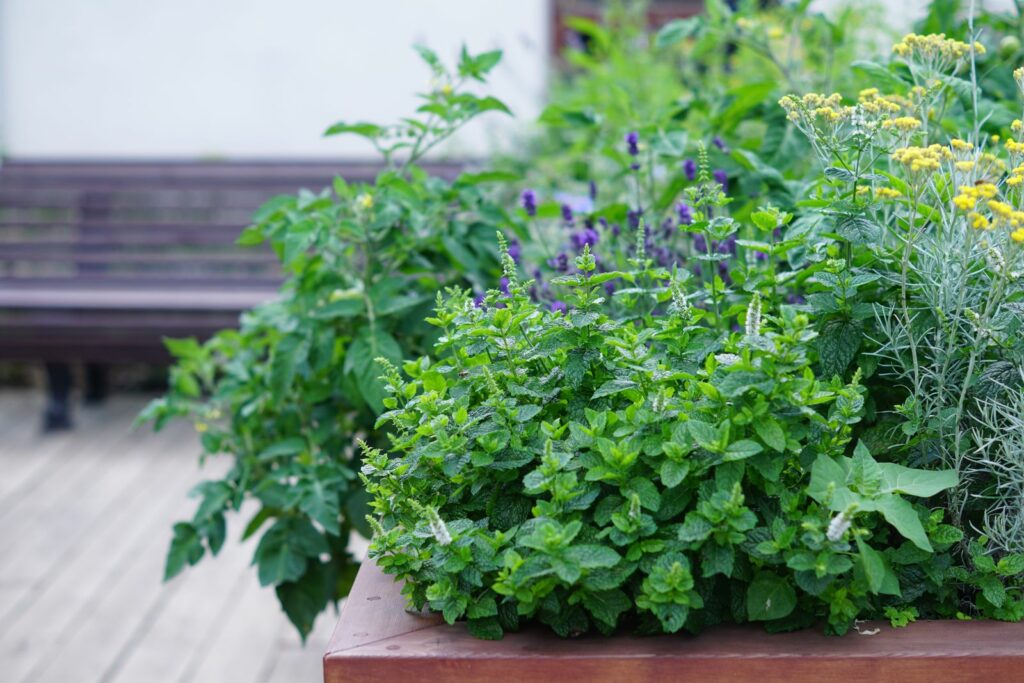
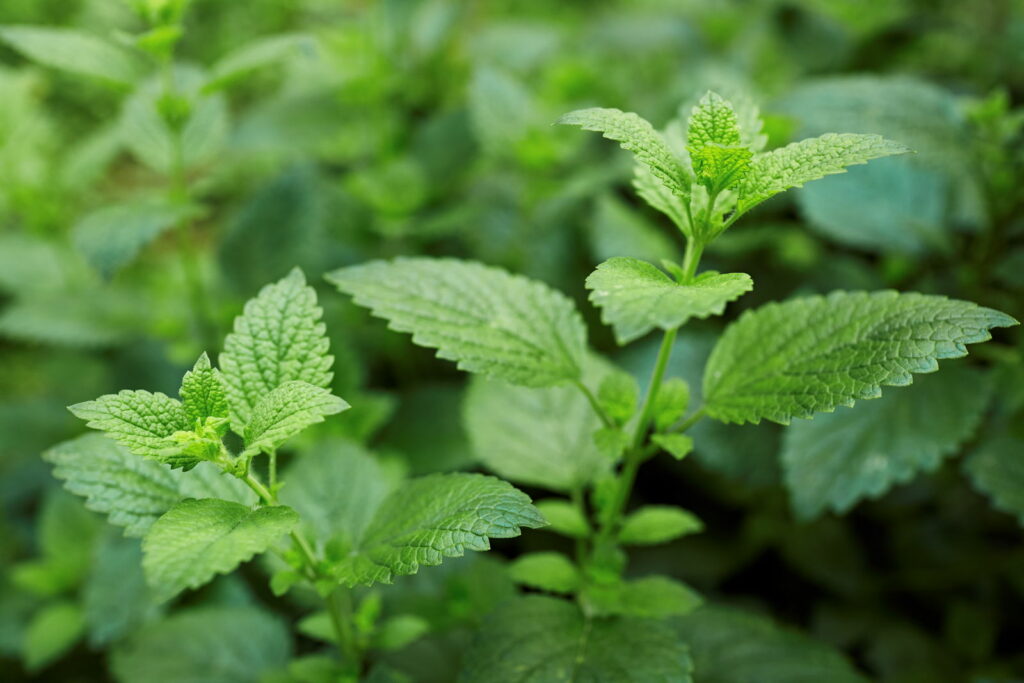
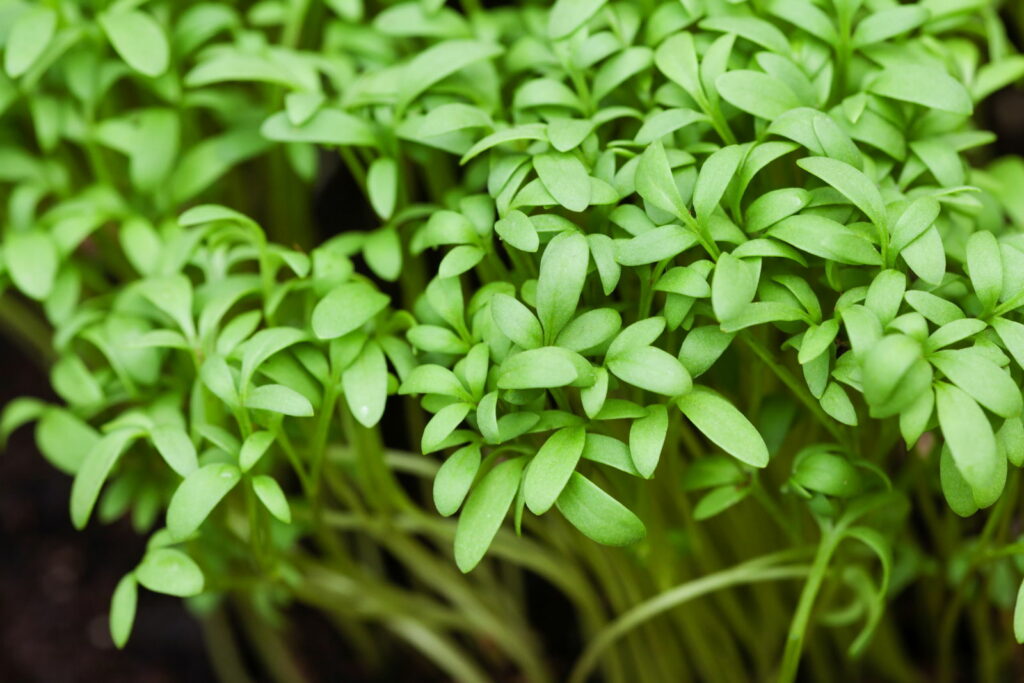

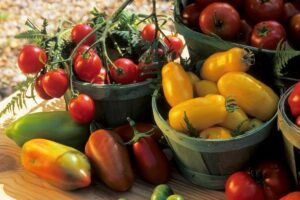
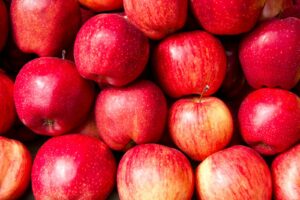
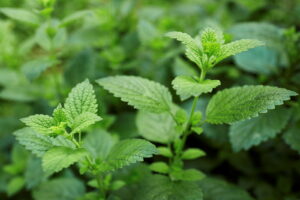
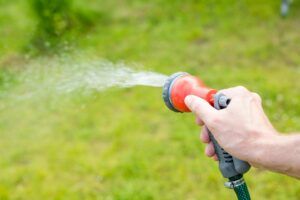
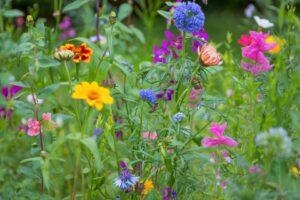
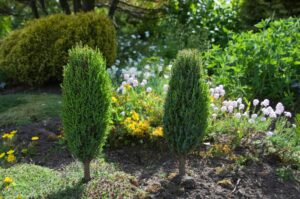



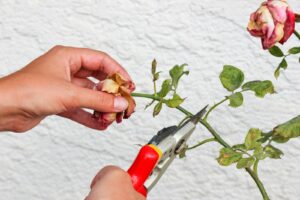
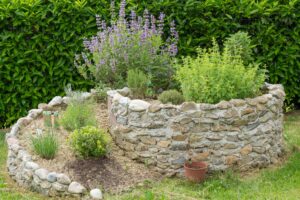

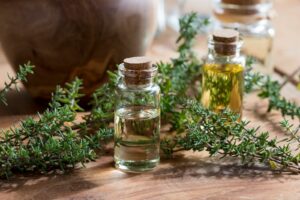
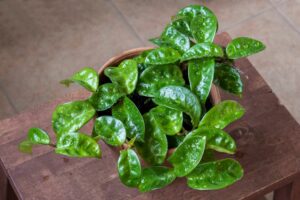
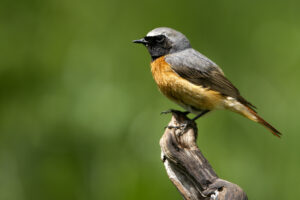

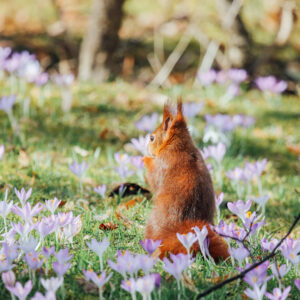
 To the Plantura products
To the Plantura products 

